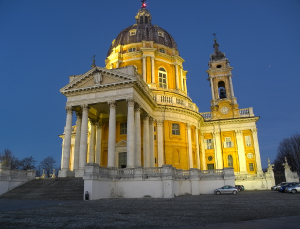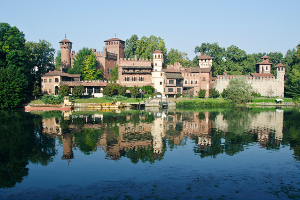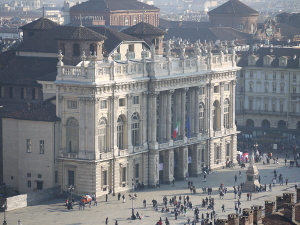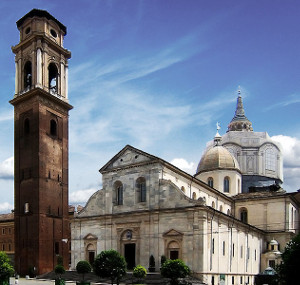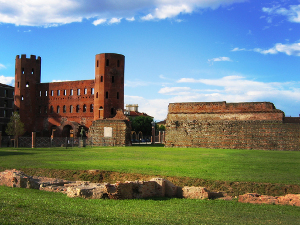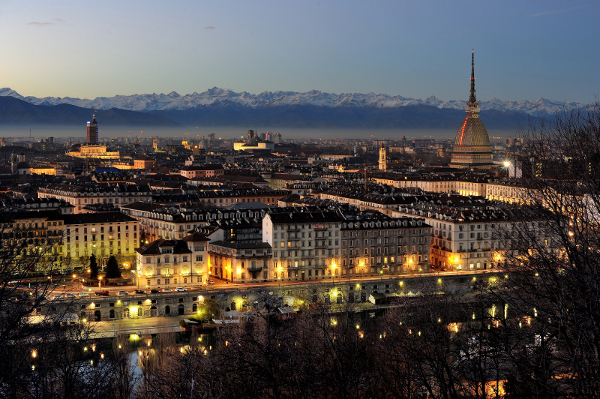

Bannaeraia 1

Bannaeraia 2

Bannaeraia 3

Bannaeraia 4

Bannaeraia 5

Bannaeraia 6

Bannaeraia 7

Bannaeraia 8

Bannaeraia 9

Bannaeraia 10

Bannaeraia 11

Bannaeraia 12

Bannaeraia 13

- WELCOME
- Call for seminars
- Call for papers
- Plenary Speakers
- PROGRAMME
- BOOK OF ABSTRACTS
- AUDIO/VIDEO ABSTRACTS
- Social Programme
- AIA JUNIOR
- ORGANIZING committee
- Scientific Committee
- REGISTRATION & DEADLINES
- conference fees
- VENUE
- TRAVEL & ACCOMMODATION
- TOURIST INFO
- contacts
WELCOME
HUMAN, HUMANE, HUMANITIES. VOICES FROM THE ANGLOSPHERE.
The Italian Association for the Study of English (Associazione Italiana di Anglistica [AIA]) biennial Conference, AIA 32, will take place at the University of Turin , Italy, on 11 th -13 th September 2025.
The theme of the 32nd AIA Conference is HUMAN, HUMANE, HUMANITIES. VOICES FROM THE ANGLOSPHERE.
We look forward to welcoming you to the Aldo Moro complex, a modern and accessible building in the heart of the city, where the Department of Foreign Languages, Literatures and Modern Cultures is based.
Address: Via Sant'Ottavio 18, 10124 Turin.
The conference is organized in collaboration with COREP.
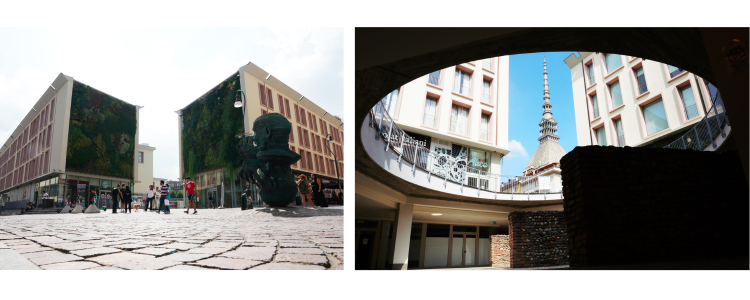
Images courtesy of Prof. Marek Lukasik
Discover UNITO below:
Call for seminars
Call for seminars
The new millennium is witnessing new geopolitical crises, ideological conflicts, the effects of climate change, which make us reflect on what ‘being human’ involves.
Real-life experiences of people struggling for survival, suffering from ethnic, religious, political, gender and linguistic discrimination or isolation tell us that ‘humane’ values are often violated or ignored.
The emphasis on ‘human, humane and humanities’ in the title of 32nd AIA Conference is meant to offer scholars in linguistic, literary, cultural and transmedial studies the opportunity to explore the various facets of ‘human nature’, as they emerge from the voices of communities in the English-speaking world. The polysemic nature of these words lends itself to reflect on the state of being human, but also on being humane, that is, feeling empathy, compassion, and understanding for fellow living entities.
The digital turn represents a huge step forward for present and future generations of scholars. However, artificial Intelligence seems to be subverting the primacy of human intellect, threatening to dehumanise many aspects of human creative and communicative practices.
Recently literature has incorporated notions of neo-materialism and posthumanism to better take into account the more-than-human agency and the interconnectedness of all living beings. New forms of enslavement determine a constant concern both in the traditional and in the new media in postcolonial literature. Environmental humanities in the Anglosphere are increasingly engaged with interconnected crucial issues of social and climate justice, asymmetrical power relations and decolonial thinking.
AIA members are invited to submit proposals for Seminars relevant to the following themes, from the perspective of literary, linguistic and cultural studies. Inter- or cross-disciplinary Seminars, addressing issues from multiple perspectives, are strongly encouraged.
 |
|
 |
|
 |
|
AIA members are invited to submit proposals (max 300 words, including references). Proposals can be jointly submitted by a minimum of two or a maximum of three convenors from different universities to the Scientific Committee (
EXTENDED DEADLINE 10 February 2025.
Notification of acceptance: 15 March 2025.
The full list of Seminars with outlines and contact addresses of convenors will be published on the conference website by 24 March 2025.
Call for papers
Call for papers
AIA members are invited to submit abstracts for single-author or co-authored papers.
Paper proposals should be sent to the seminar convenors by 23 April 2025 extended deadline 2 May 2025. Download the Book of Seminars.
Please submit your abstract as a word file following the template. Format your in-text and bibliographic references according to APA7.
Authors must be fully paid-up AIA members.
Deadline for submission of abstracts: 23 April 2025.
Notification of acceptance: 15 May 2025.
Please note that:
– Seminars will include either 4, 5 or 8 speakers. Each speaker will be allowed 20 minutes for presentation.
– AIA members may present only one paper (this applies both to single-author and co-authored presentations).
Plenary Speakers
PLENARY SPEAKERS
AIA 32 will feature the following plenary speakers:
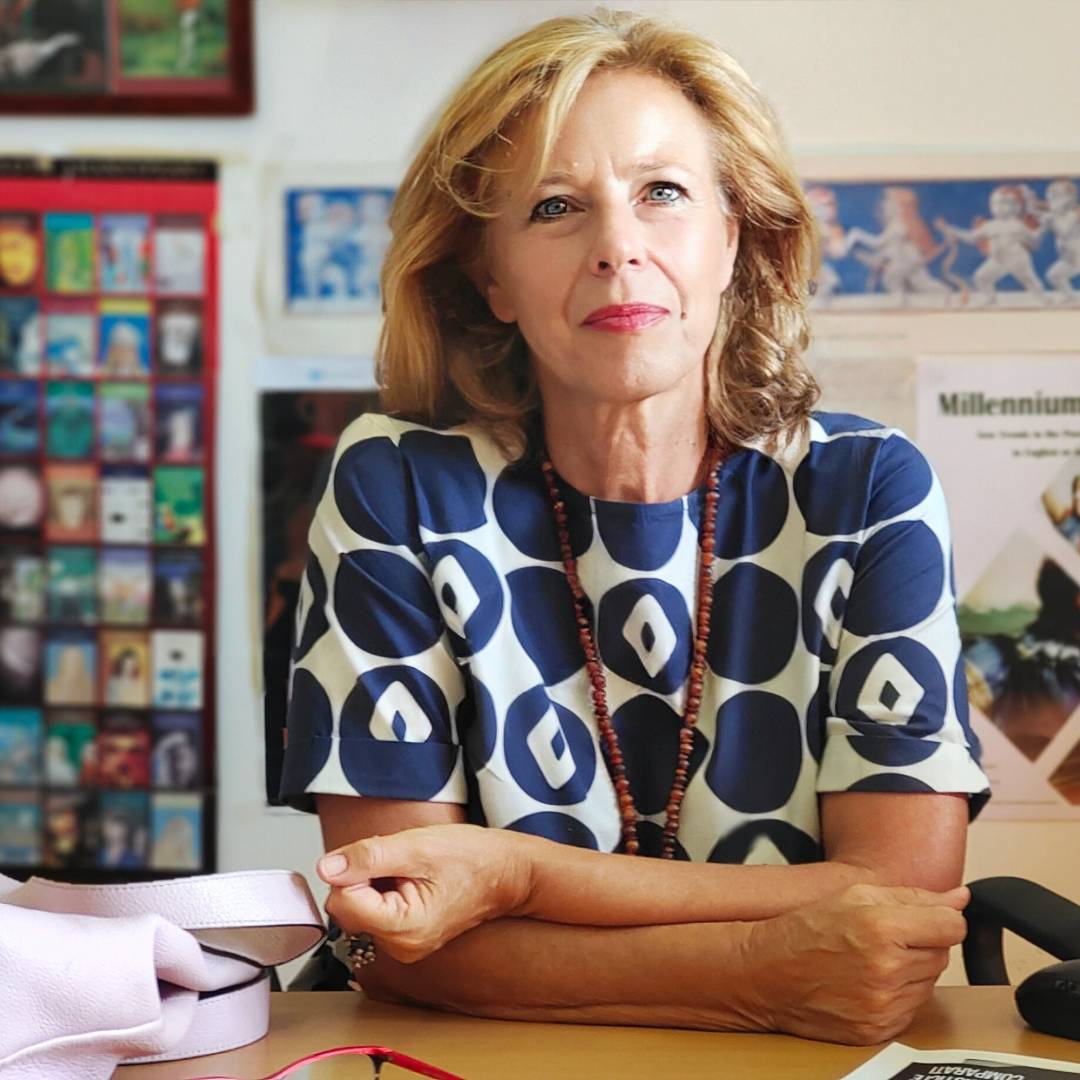
Rossella Ciocca, University of Naples “L’Orientale”
Rossella Ciocca is Professor of English and Anglophone Literatures at the University of Naples ‘L’Orientale’, where she has been Coordinator of the PhD Programme in Literary, Linguistic and Comparative Studies. She is on the editorial board of numerous national and international Journals and book series. She has been the recipient of various competitive funded research grants. Her publications include volumes on the literary representations of otherness and on Shakespeare, and the translation and the edition of Shakespearean plays. Her more recent research and teaching interests include Postcolonial Literature and Theory, Black British, South Asian, Diasporic and Indian Literatures, Ecocriticism and Cli-fi, the notions of trans and post-humanism. She has recently edited with Sanjukta Das Gupta, Adivasi Histories, Stories, Visual Arts and Performances (Anglistica AION An Interdisciplinary Journal, 2015); with Neelam Srivastava the volume Indian Literature and The World (Palgrave-Macmillan, 2017); with Ganesh N. Devy, “Beyond Cultural Aphasia” in The Question of Silence (Orient BlackSwan, 2019); with Alex Tickell Millennium’s Children. New Trends in South-Asian Postmillennial Anglophone Literature (Textus, 2020); with Sabita Manian, Living in the Age of Anger: Representing ‘Negative Solidarities’ in Contemporary Global Culture (Anglistica AION An Interdisciplinary Journal, 2021); and with Marta Cariello Ressentiment, Anger, and Fear. Narratives and practices of the 'sad passions' (de genere. Rivista di studi letterari, postcoloniali e di genere, Fall 2024). She is currently working on the publication of Imaginative kin-making. Narrating alternative forms of kinship in survival literature and fiction (FES - Spring 2025). In June 2024, she organized and hosted with Katherine E. Russo the first edition of the International Doctoral Summer School of the Dis-4Change Center (Studies on Climate Change and Environmental Discourse).
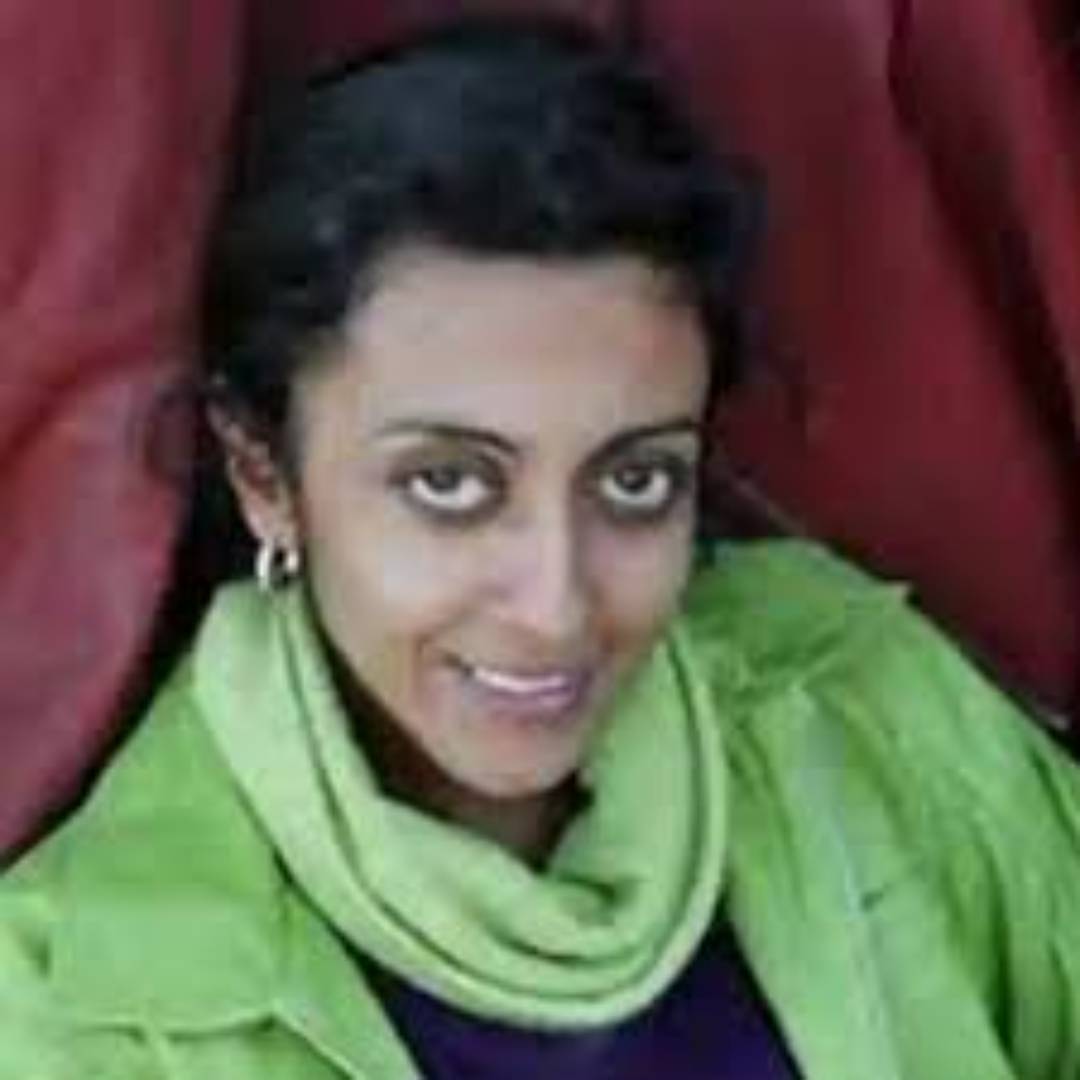
Radhika Jha, Cosmopolitan Author
Radhika Jha was born in Delhi, she received her bachelors in Anthropology at Amherst College, and did her Masters in Political Science at the University of Chicago. She is the author of five critically acclaimed books – Lanterns on their Horns (2009), Smell (2001) (Prix Guerlain 2002), The Elephant & The Maruti (2004), My Beautiful Shadow (2014) and The Hidden Forest (2022). Her books have been translated into 24 languages. As a journalist, she worked for The Hindustan Times and Business World magazine. As a social worker, she has worked for the Rajiv Gandhi Foundation, where she started “Project Interact” – a project for the education of the children of victims of terrorism in India. She has lived in Tokyo, Beijing, Athens and New York. She speaks Chinese, Japanese, French, Luxembourgish and some Italian and Greek. Her mother-tongues are Hindi and English. She is also an acclaimed Indian Classical Dancer and teaches and performs around the world.
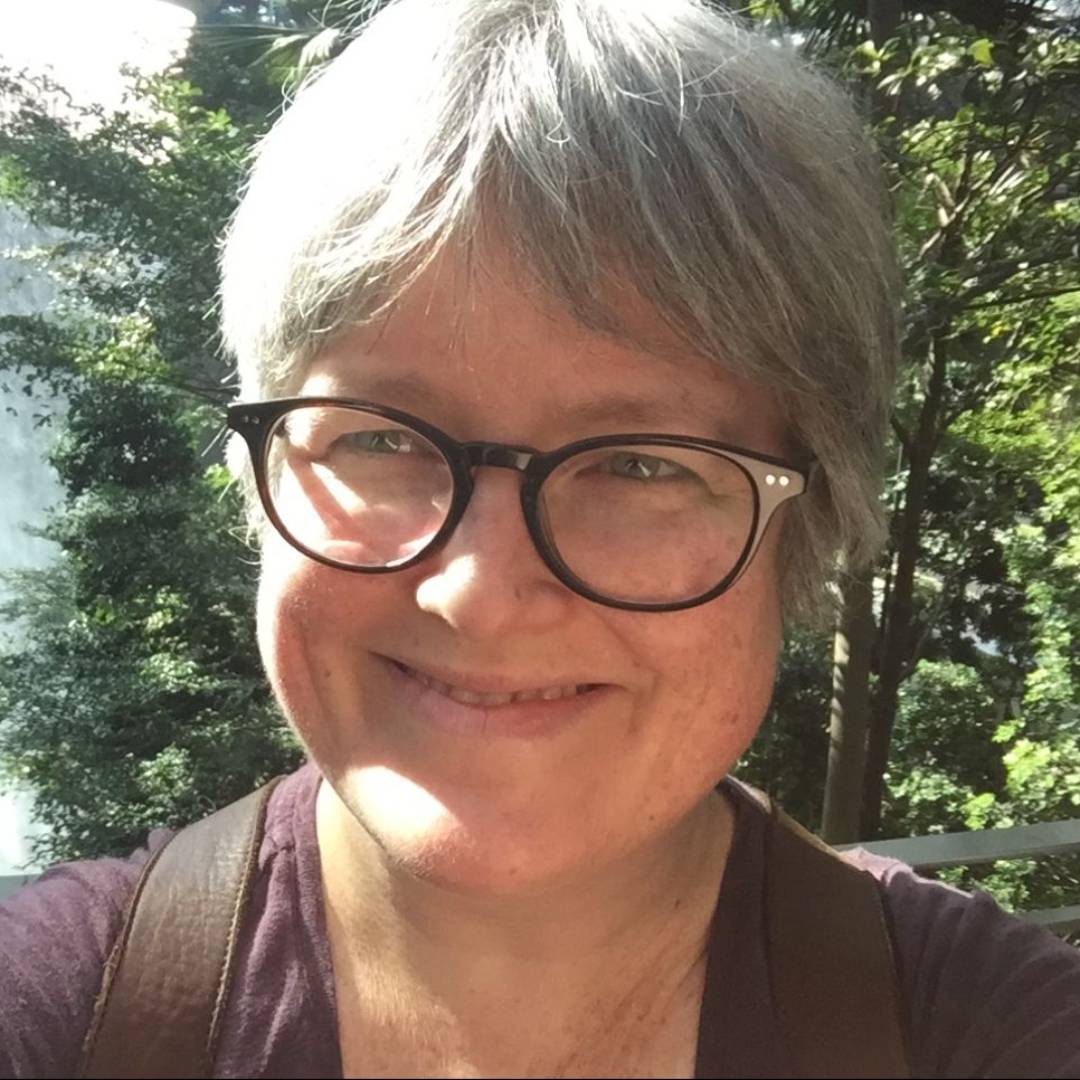
Carol O’Sullivan, University of Bristol, United Kingdom
Carol O'Sullivan is Associate Professor in Translation Studies at the University of Bristol where she teaches graduate and advanced undergraduate modules in translation theory, audiovisual translation and Italian to English translation. She has published widely on audiovisual translation, translation history, literary translation and public representations and perceptions of translation. Her books include Translating Popular Film (2011) and (co-edited with Jean-François Cornu) The Translation of Films 1900-1950 (2019). She is the Principal Investigator of the UK Subtitling Audiences and Reception Network project funded by the UK's Arts and Humanities Research Council (2024-5).
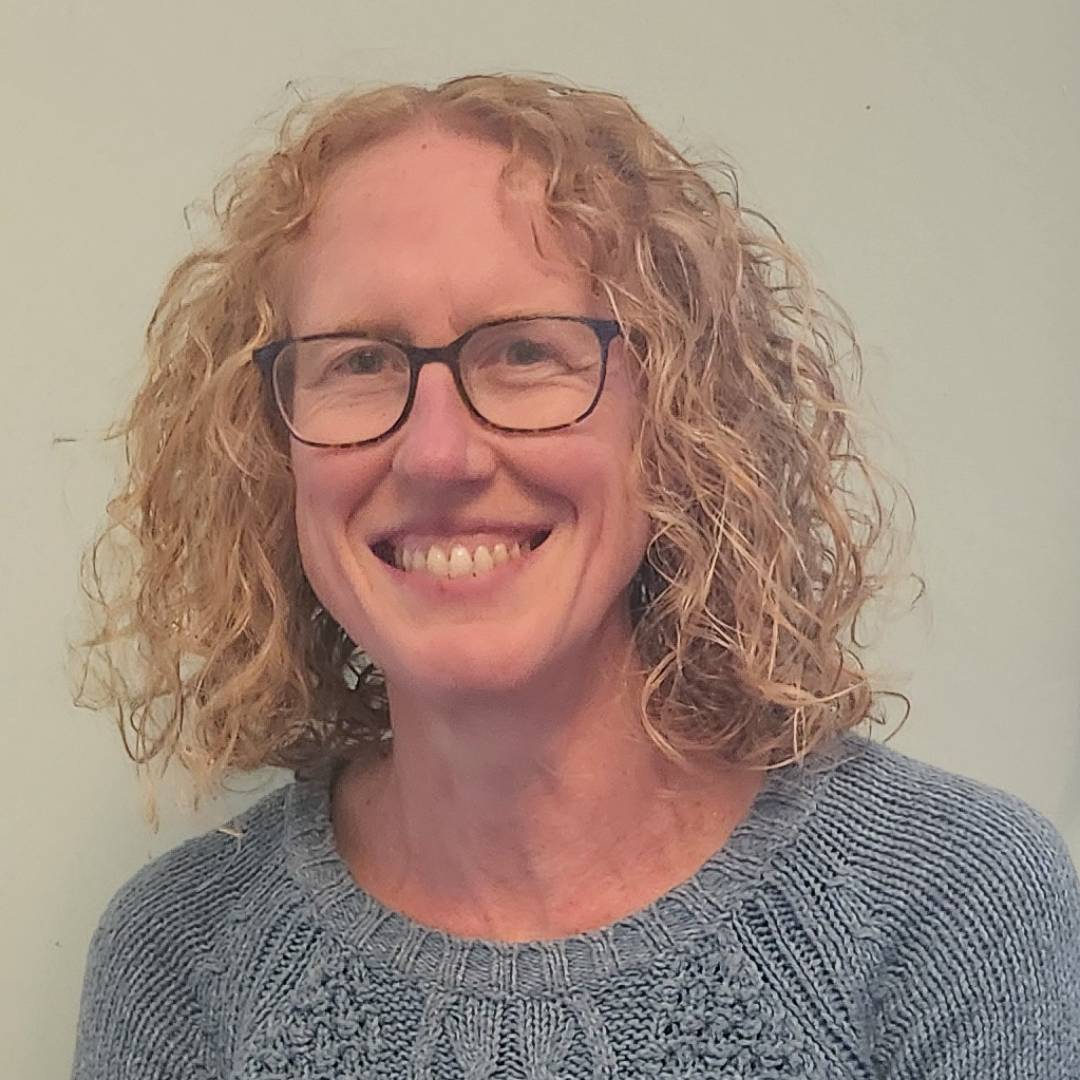
Caroline Tagg, The Open University, United Kingdom
Caroline Tagg is Senior Lecturer in Applied Linguistics at The Open University, UK.
Her research into language and mobile technologies rests on the understanding that digital communication practices are deeply embedded into individuals’ wider social, political and working lives. She is author of Exploring Digital English (2015), Taking Offence on Social Media (with Philip Seargeant and Amy Aisha Brown, 2017) and Mobile Messaging and Resourcefulness: a post-digital ethnography (with Agnieszka Lyons, 2022). The latter puts forward the concept of ‘mobile resourcefulness’ to understand how people adapt mobile technologies to suit their everyday situated purposes. Her edited collections include Message and Medium: English language practices across old and new media (with Mel Evans, 2020), which unpacks a ‘transhistorical’ approach to digital media emphasising continuity in practice, and the forthcoming Routledge Handbook of Language and Social Media around the World (with Korina Giaxoglou and Kristin Vold Lexander) which seeks to decentre the field of language and social media.
She is co-editor of the Routledge Focus series Language and Social Media (with Sirpa Leppänen), former editor-in-chief of the international journal Discourse, Context & Media (2021-2024). and current Chair of the British Association of Applied Linguistics (BAAL, 2024-2027).
PROGRAMME
PROGRAMME
The final programme is now available. Click here to download.
AIA 32 CONFERENCE SYNTHETIC PROGRAMME (download here)
| Wednesday 10 September 2025 | |
| 18:00-20:00 | Welcome Drink - Caffè Reale (advanced registration is required) |
| Thursday 11 September 2025 | |
| 8:30-9:00 | Registration - Auditorium |
| 9:00-9:30 | Conference Opening and Welcoming Addresses |
| 9:30-10:30 | Plenary 1 - Auditorium |
| 10:30-11:00 | Coffee Break - Auditorium |
| 11:00-13:00 | Seminars (Parallel Sessions) |
| 13:14:30 | Lunch - Main Hall Aldo Moro / Auditorium |
| 14:30-15:30 | Plenary 2 - Auditorium |
| 15:30-16:00 | Coffee Break - Auditorium |
| 16:00-18:30 | Seminars (Parallel Sessions) |
| 19:00-20:00 | Social Event - Auditorium |
| Friday 12 September 2025 | |
| 8:30-9:00 | Registration - Auditorium |
| 9:00-10:00 | Plenary 3 Auditorium |
| 10:00-10:30 | Coffee Break Auditorium |
| 10:30-12:30 | AIA General Meeting - Auditorium |
| 12:30-14:00 | Lunch - Main Hall Aldo Moro / Auditorium |
| 14:00-16:00 | Seminars (Parallel Sessions) |
| 16:00-16:30 | Coffee Break Auditorium |
| 16:30-19:00 | Seminars (Parallel Sessions) |
| 20:00 | SOCIAL DINNER (Fiorfood restaurant - advanced reservation is required) |
| Saturday 13 September 2025 | |
| 8:30-11:00 | Seminars (Parallel Sessions) |
| 11:00-11:30 | Coffee Break Auditorium |
| 11:30-12:30 | Plenary 4 Auditorium |
| 12:30-13:00 | Conference Closing and Award Ceremony |
BOOK OF ABSTRACTS
BOOK OF ABSTRACTS
Plenary 1, Plenary 2, Plenary 3, Plenary 4
Seminar 1, Seminar 2, Seminar 3, Seminar 4, Seminar 5, Seminar 6, Seminar 7, Seminar 8, Seminar 9, Seminar 10, Seminar 11, Seminar 12, Seminar 13, Seminar 14, Seminar 15, Seminar 16, Seminar 17, Seminar 18, Seminar 19, Seminar 20, Seminar 21, Seminar 22, Seminar 23, Seminar 24, Seminar 25, Seminar 26, Seminar 27, Seminar 28, Seminar 29, Seminar 30, Seminar 31, Seminar 32, Seminar 33, Seminar 34, Seminar 35, Seminar 36, Seminar 37, Seminar 38, Seminar 39, Seminar 40, Seminar 41, Seminar 42, Seminar 43, Seminar 44, Seminar 45, Seminar 46, Seminar 47, Seminar 48, Seminar 49, Seminar 50, Seminar 51, Seminar 52, Seminar 53, Seminar 54, Seminar 55, Seminar 56, Seminar 57.
Plenary 1
Thursday 11 September h. 9:30-10:30, Auditorium
Researching audiences for subtitled media in the UK
Carol O’Sullivan (University of Bristol, UK)
Abstract (click to open)
Plenary 2
Thursday 11 September h. 14:30-15:30, Auditorium
When we ‘were’ posthuman. Scanning our lost future?
Rossella Ciocca (Università di Napoli L’Orientale)
Abstract (click to open)
Plenary 3
Friday 12 September h. 9:00-10:00, Auditorium
Postdigital intimacies in the Anglosphere: Implications for human connection and English language practices
Caroline Tagg (The Open University, UK)
Abstract (click to open)
Plenary 4
Saturday 13 September h. 11:30-12:30, Auditorium
Deep Fake: Plato’s cave and the Virtual World
Radhika Jha (Cosmopolitan Author)
Abstract (click to open)
SEM1. Shakespeare and the re-invention of the human
Convenors: Carlo M. Bajetta (Università della Valle d’Aosta), Rocco Coronato (Università degli Studi di Padova)
13 September h. 8:30-11:00, PN 16
● Stuck in between: Paradox as Shakespearean expression of liminal humanity (Beatrice Righetti, Università di Verona)
● Human troubles: Rethinking social conflict and monstrosity in Shakespeare’s Plays (Carmen Gallo, Sapienza Università di Roma)
● “I have suffered with those that I saw suffer”. Compassion and the early modern discourse of vision in The Tempest (Alessandra Squeo, Università degli Studi di Bari)
● Shakespeare as Pananthopos: Serbian perspectives on playwright’s humanity (1864/1916) (Petra Bjelica, Università di Verona)
SEM1. Abstracts (click to open)
SEM2. Humanism in motion: Travel literature, salon culture, and cosmopolitan networks
Convenors: David George Lyons (Alma Mater Studiorum Università di Bologna), Antonia Marcarelli (Alma Mater Studiorum Università di Bologna), Giovanni Iamartino (Università degli Studi di Milano)
11 September h. 16:00-18:30, S6 Moro
● Great news from Ireland at door! A corpus-based discourse analysis of coffee house dialogues and their discursive practices in late 17th and early 18th century England (1662-1712) (Ersilia Incelli, Sapienza Università di Roma)
● Travel writing and well-being: Anna Riggs Miller and Hester Lynch Piozzi as mediators of Italian culture in England (Laura Pinnavaia, Università degli Studi di Milano)
● “The cause of liberty still warms my bosom”: Helen Maria Williams and the lesson of recent history of France (Tiziana Ingravallo, Università di Foggia)
● Women, travel, and public discourse: Exploring the personal and public dimensions of Lady Sarah Lyttelton’s and Lady Elizabeth Grosvenor’s travel writings (Marta Zonca, Università del Piemonte Orientale)
● Mapping contact: Tracing salon culture in women’s travel writing through digital humanities tools (David George Lyons, Alma Mater Studiorum Università di Bologna)
SEM2. Abstracts (click to open)
SEM3. “In behalf of the human race”: Reviving The Liberal and liberalism
Convenors: Maria Elena Capitani (Università di Parma), Alessandra Crotti (Sapienza Università di Roma),
Fabio Liberto (Alma Mater Studiorum Università di Bologna)
13 September h. 8:30-11:00, PN 19
● “And my poor Fool is hanged!” Nineteenth-century Shakespeares in The Liberal (Giacomo Ferrari, Università degli Studi di Firenze)
● “A journal to be directed against everything in religion, in morals and probably in government and literature”: William Wordsworth and/in The Liberal (Alessia Testori, Università di Parma)
● Promoting “the true Italian language” in Britain: Leigh Hunt as a reviewer and translator for The Liberal (Fabio Liberto, Alma Mater Studiorum Università di Bologna)
● The erotic Liberal in James Joyce and Salman Rushdie (Alessandra Crotti, Sapienza Università di Roma)
● “We little band of atheistical perverts, free-lovers, we poeticals”: Reviving The Liberal and liberalism in neo-romantic biodrama (Maria Elena Capitani, Università di Parma)
SEM3. Abstracts (click to open)
SEM4. British Romantic literature as cultural heritage: Texts, objects and places
Convenors: Serena Baiesi (Alma Mater Studiorum Università di Bologna), Marco Canani (Università degli Studi di Milano)
4A 12 September h. 14:00-16:00, S5 Moro
● Slavery, abolition and cultural memory: The role of the museum (Serena Baiesi, Alma Mater Studiorum Università di Bologna)
● From Netley Abbey to Northanger Abbey: Gothic tourism and the cultural legacy of the dissolution of the monasteries (Caterina Daolio, Alma Mater Studiorum Università di Bologna)
● From chivalric spectacle to cultural landscape: Ivanhoe’s legacy in Ashby-de-la-Zouch (Angel Antonio De Oliveira Amata, Università di Pisa)
4B 12 September h. 16:30-18:30, S5 Moro
● From verse to vista: Romantic memory and place-making in Lerici and Portovenere (Marco Canani, Università degli Studi di Milano)
● Piazza di Spagna: British Romanticism’s gateway to Italy and Europe (Andrew Brayley, Università di Catania)
● The Euganean Hills and their romantic heritage: Past and present (Myriam Di Maio, Università degli Studi “G. d’Annunzio” Chieti-Pescara)
SEM4. Abstracts (click to open)
SEM5. U/Dys/Eco-topias: Hope and despair in Anthropocenic literature
Convenors: Gioia Angeletti (Università di Parma), Roberta Grandi (Università della Valle d’Aosta)
13 September h. 8:30-11:00, PN 11
● The second creation. Intermediality and ecocritical discourse in Under Milk Wood (Davide Crosara, Sapienza Università di Roma)
● “Focused anger” and “radical hope” in young adult climate fiction: an affective reading of Lauren James’s Green Rising (Chiara Xausa, Alma Mater Studiorum Università di Bologna)
● Narrating resistance: YA dystopias and the ecological imagination (Carolina Celeste Granini, Università Ca’ Foscari Venezia)
● Expecting the end: Affective turns and green utopianism in The Future (Asia Battiloro, Sapienza Università di Roma / University of Silesia in Katowice)
SEM5. Abstracts (click to open)
SEM6. Contemporary narratives of humanity in a dystopian world
Convenors: Lucia Esposito (Università degli Studi Roma Tre), Alessandra Ruggiero (Università degli Studi di Teramo)
6A 12 September h. 14:00-16:00, S1 Moro
● Asylum, surveillance, and nomadic erasure in Ali Smith’s Gliff (Giuseppe De Riso, Università di Napoli L’Orientale)
● The algorithm is watching: Surveillance, paranoia, and dystopian logic in Lucy Kirkwood’s That Is Not Who I Am (Francesca Forlini, Sapienza Università di Roma)
● Posthuman empathy and affective simulation: The case of Hotel Reverie (Chiara Frescofiore, Università di Napoli L’Orientale)
● Companion species in a pandemic dystopia: Humans and/as hybrids in the TV series Sweet Tooth (2021-2024) (Maria Fiorella Suozzo, Università degli Studi di Napoli Federico II)
6B 12 September h. 16:30-19:00, S1 Moro
● Kazuo Ishiguro’s altermodern ustopia Klara and the Sun (Laura Colombino, Università di Genova)
● Gender fluidity and dystopian materiality in Aliya Whiteley’s The Beauty (2014) (Maddalena Carfora, Università di Napoli L’Orientale)
● Re-storying the apocalypse in Indigenous speculative and science fiction (Francesca Mussi, Università di Pisa)
● The power of dystopian narratives at the crossroads between literature and media (Lucia Esposito, Università di Roma Tre / Alessandra Ruggiero, Università degli Studi di Teramo)
SEM6. Abstracts (click to open)
SEM7. Monstrous bodies: Deviance, transformation, and belonging in contemporary British fiction
Convenors: Luca Baratta (Università degli Studi di Siena), Michela Compagnoni (Università degli Studi Roma Tre)
13 September h. 8:30-11:00, S6 Moro
● Spectral app-aritions, prosthetic compositions: Jeanette Winterson’s Night Side of the River (Andrea Raso, Università di Roma Tre)
● Monstrous others, posthuman selves: Challenging boundaries and rethinking identities in Machines Like Me by Ian McEwan (Irene Montori, Università degli Studi di Napoli Federico II)
● Monstrous bodyscapes: Queer(ing) complex embodiments in Michel Faber’s Under the Skin (2000) (Giuseppe Capalbo, Tor Vergata Università degli Studi di Roma)
● “I’m not a monster”: Deviant bodies as resistance in Mohale Mashigo’s Intruders (Marta Fossati, Università degli Studi di Milano)
SEM7. Abstracts (click to open)
SEM8. Questioning the anthropos in Anglophone Anthropocene narratives
Convenors: Lucio De Capitani (Università Ca’ Foscari Venezia), Angelo Monaco (Università degli Studi di Bari Aldo Moro)
8A 11 September h. 11:00-13:00, S6 Moro
● “Poor Visitor”: Jamaica Kincaid on place, belonging and environmental Justice (Simona Corso, Università degli Studi Roma Tre)
● The art of not adapting in the Anthropocene: Indigenous perspectives on resilience in Mahasweta Devi’s “Pterodactyl, Puran Sahay, and Pirtha” and Cherie Dimaline’s Marrow Thieves series (Lucio De Capitani, Università Ca’ Foscari Venezia)
● Posthuman Dasein: Biopolitics, ontology, and the limits of the human in Kazuo Ishiguro’s Never Let Me Go (Antonino Virga, Università di Catania)
8B 12 September h. 14:00-16:00, S6 Moro
● Planetary subalterns and nation states: A critique of classical climate justice (Alessandro Vescovi, Università degli Studi di Milano)
● Bio-logos. Pondering the Anthropocene through self-narration in Helen Macdonald and Olivia Laing (Elisa Bolchi, Università degli Studi di Ferrara)
● More and less than human: Posthuman conditions in Mickey 17 and Companion (Gaia Zaccaro, Università di Napoli L’Orientale)
● The natural resource curse: An eco-stylistic analysis of verbal and non-verbal defiance in What Mama Said (2003) by Osonye Tess Onwueme (Aminat Emma Badmus, Università degli Studi di Modena e Reggio Emilia)
SEM8. Abstracts (click to open)
SEM9. New gender perspectives in the literary Anglosphere: A more inclusive view of the ‘human’
Convenors: Paola Della Valle (Università di Torino), Federica Zullo (Università degli Studi di Urbino Carlo Bo)
9A 11 September h. 11.00-13.00, S2 Moro
● Women scientists in the contemporary fictions of the anglosphere (Carmen Concilio, Università di Torino)
● Posthuman feminism in Alisdair Gray’s Poor Things (Paola Della Valle, Università di Torino)
● Women characters in Abdulrazak Gurnah’s Theft (2025) between female agency and neocolonialism (Costanza Mondo, Università di Torino)
● Neo-Victorian metafictions of affliction: Inclusive feminist reflections on female disability (Enrica Zaninotto, Università di Verona)
9B 11 September h. 16.00-18.30, S2 Moro
● “Oh Cassandra [...] let us devise a method by which men may bear children”: Virginia Woolf’s and Angela Carter’s perspectives on humanness between androgyny and the cyborg (Savina Stevanato, Università degli Studi Roma Tre)
● Gendered labour and double colonisation: Women in the textile industries of Biella and Bombay (Harjot Banga, Università di Torino)
● “Until to atoms I dispersed be”: The human and the non-human in Hester Pulter’s poetry (Alessio Mattana, Università di Torino)
● Love as action: Women as negotiators of conflict and promoters of progress in Pakistani Anglophone fiction (Daniela Vitolo, Università di Napoli L’Orientale)
● The cost of living: Upward mobility and migration in Anglophone women’s writing between the Caribbean and USA (Federica Zullo, Università di Urbino Carlo Bo)
SEM9. Abstracts (click to open)
SEM10. Gender-ed representations and/in migration
Convenors: Raffaella Antinucci (Università degli Studi di Napoli Parthenope), Claudia Capancioni (Bishop Grosseteste University, Lincoln, UK), Mariaconcetta Costantini (Università degli Studi “G. d’Annunzio” Chieti-Pescara)
12 September h. 14:00-16:00, PN 15
● The (Re)formation of gendered migrant identities: The literary case of Julia Alvarez’s How the García Girls Lost Their Accent (Alessandra Di Pietro, Università degli Studi “G. d’Annunzio” Chieti-Pescara)
● ‘Debriefing the Rose’: the migrant body between identity, gender and memory in Mary di Michele's poetry (Concetta Maria Sigona, Universidad de Burgos)
● Edinburgh’s Italian daughters: Gender, diaspora and identity in third-generation oral narratives (Giuseppe Vitale, Università degli Studi di Napoli Parthenope)
● Monisha Rajesh’s “hyphenated” cultural identity in Around India in 80 Trains (2012) (Giulia Nonno, Università “G. d’Annunzio” Chieti-Pescara)
SEM10. Abstracts (click to open)
SEM11. Empathy in aesthetic experience: Themes, genres, forms
Convenors
Claudia Cao (Università degli Studi di Cagliari), Angela Leonardi (Università degli Studi di Napoli Federico II), Federica Perazzini (Sapienza Università di Roma)
13 September h. 8:30-11:00, PN 20
● Learning to be sympathetic in All is True by Shakespeare and Fletcher: Instructions for rulers and magistrates (Maria Grazia Dongu, Università degli Studi di Cagliari)
● A common stream: Empathy and the tides of consciousness in Virginia Woolf (Serena Ammendola, Università della Calabria)
● Empathy and lack of empathy in contemporary psychiatric narratives: the cases of Kavan, Quin and Galloway (Daniele Corradi, Università di Parma)
● William Trevor and the lures of critical empathy (Angelo Monaco, Università degli Studi di Bari Aldo Moro)
● Empathy at the edge of the human: Trauma, voice, and otherness in Ishiguro’s narratives (Claudia Cao, Università di Cagliari / Angela Leonardi, Università degli Studi di Napoli Federico II)
SEM11. Abstracts (click to open)
SEM12. Innovative approaches to the teaching of literature between theory and practice
Convenors: Maurizio Ascari (Alma Mater Studiorum Università di Bologna), Alessandra Petrina (Università degli Studi di Padova), Laura Tosi (Università Ca’ Foscari Venezia)
13 September h. 8:30-11:00, PN 14
● Teaching Shakespeare through adaptations (Laura Tosi, Università Ca’ Foscari Venezia / Rachele Bassan, Università Ca’ Foscari Venezia)
● Cordelia is doing yoga: Playing ecocritically with Shakespeare (Shaul Bassi, Università Ca’ Foscari Venezia)
● The wing wherewith we fly to heaven: Rethinking education across borders (Mariacristina Cavecchi, Università degli Studi di Milano)
● Give beauty a chance: Teaching English language & literature through lyric poetry (Richard Ambrosini, Università degli Studi Roma Tre)
● Beyond anxiety: Pursuing hot cognition in a co-creative environment (Maurizio Ascari, Alma Mater Studiorum Università di Bologna)
SEM12. Abstracts (click to open)
SEM13. Weaving voices: Collaborative creativity in literature and culture
Convenors: Francesca Di Blasio (Università di Trento), Ilaria Natali (Università degli Studi di Firenze)
11 September h. 11:00-13:00, Gorr 3
● The plurivocal art of silence (Boris Zakić, Georgetown College, Kentucky)
● Collaborative tensions and editorial agency in Yeats and Ellis’s Blake project (Arianna Antonielli, Università degli Studi di Firenze)
● Reading, publishing, translating: Intertextual and professional collaborations in Virginia Woolf’s writing (Letizia Dolcini, Università di Trento)
● Interconnected, interrelated: Percy Bysshe Shelley’s societies of texts and affections (Ilaria Natali, Università degli Studi di Firenze)
SEM13. Abstracts (click to open)
SEM14. “Praises his head”: Acts of resistance in Samuel Beckett
Convenors: Davide Crosara (Sapienza Università di Roma), Rossana Sebellin (Tor Vergata Università degli Studi di Roma)
14A 11 September h. 11:00-13:00, S4 Moro
● The twilight of resistance: Representations of old age in the work of Samuel Beckett (Irene De Angelis, Università di Torino)
● “You love me so”: From musical-box tune to revealing song in Happy Days (Yuri Chung, Sapienza Università di Roma)
● The space of silence in Beckett’s radio plays: Words and Music (1962) and Cascando (1963) (Sara Pallante, Università degli Studi di Salerno / Università degli Studi di Napoli Federico II)
● Wor(l)ds fall apart: The obligation to express and the resistance to interpretation in Beckett’s theatre (Antonio Sanges, University College London)
● “I say it as I hear it”: Fundamental sounds in Samuel Beckett’s later texts (Rossana Sebellin, Tor Vergata Università degli Studi di Roma)
14B 11 September h. 14:30-17:00, S4 Moro
● “P raises his head”. Acts of resistance in Beckett's corpus (Penelope Ioannou, National and Kapodistrian University of Athens)
● “Accursed progenitor!”. Beckett and the container (Paolo Caponi, Università degli Studi di Milano)
● The life of the mound (Livia Sacchetti, John Cabot University)
● Samuel Beckett’s regimes of ignorance: Ethico-political acts of resistance (S. E. Gontarski, Florida State University, US)
SEM14. Abstracts (click to open)
SEM15. Italian approaches to stylistics
Convenors: Bianca Del Villano (Università di Napoli L’Orientale), Daniela Francesca Virdis (Università degli Studi di Cagliari)
15A 12 September h. 14:00-16:00, S7 Moro
● Ecostylistic approaches to landscapes (Daniela Francesca Virdis, Università degli Studi di Cagliari)
● The stylistics of healthcare discourse: transitivity, modality, and the representation of femininity in online patient information leaflets (Annalisa Federici, Università degli Studi Roma Tre)
● Stylistic mediation in news translation: Ethics in Italian journalism (Eleonora Fois, Università degli Studi di Cagliari)
● A new addition to the family? Introducing the theory and practice of postcolonial stylistics (Esterino Adami, Università di Torino)
15B 13 September h. 8:30-11:00, S2 Moro
● Neurodivergence, foregrounding, and narrative empathy in Flowers for Algernon: A stylistics-based reader-response study (Piergiorgio Trevisan, Università degli Studi di Trieste)
● “Thou shalt find that I exceed my sex”: Styling female agency in Shakespeare (Chiara Ghezzi, Università di Napoli L’Orientale)
● Language and worldview in Malcolm Lowry’s Under the Volcano: A computer-aided analysis of Mexican-Hispanic and Indigenous languages (Giuseppina Balossi, Independent scholar)
● Merging deixis: time, space and persona in 4.48 Psychosis (Mariaconcetta Mirto, Università di Napoli L’Orientale)
SEM15. Abstracts (click to open)
SEM16. The grammar of silence: Cross-disciplinary, transmedia echoes
Convenors: Francesca Saggini (Università degli Studi della Tuscia), Enrichetta Soccio (Università degli Studi “G. d’Annunzio” Chieti-Pescara)
16A 11 September h. 11:00-13:00, S8 Moro
● “The music you make has always been in your own power”: voice, silence and the human in Emma Donoghue’s “The Tale of the Voice” (Sidia Fiorato, Università di Verona)
● Silenced voices and echoes of tyranny: Delhi Calm and the trauma of the Indian Emergency (Michela Canepari, Università di Parma)
● Unveiling the unsaid: Exploring the grammar of silence in Robert Graves’s poetry (Adriana Marinelli, Università degli Studi di Napoli Parthenope)
● Silence, alienation and subversion in Tennyson’s Geraint and Enid (Lucrezia Scarpa, Università degli Studi “G. d’Annunzio” Chieti-Pescara)
16B 12 September h. 14:00-16:00, S8 Moro
● The seduction of the unsaid: Silent gods in exile in E. M. Forster’s short stories (Paolo Bugliani, Università di Pisa)
● Reticent narrators in Virginia Woolf’s novels and Rachel Cusk’s Outline Trilogy (Luca Pinelli, Università degli Studi di Bergamo / Università di Verona)
● “A shapeless whirl of nothings”: Silence and the exhausted writer in George Gissing’s New Grub Street (1891) (Angelica Belloli, Università degli Studi “G. d’Annunzio” Chieti-Pescara)
● From sound to silence – A diachronic comparison (Edward Andrea Sheldon, Università degli Studi “G. d’Annunzio” Chieti-Pescara)
SEM16. Abstracts (click to open)
SEM17. Framing the feminine: Language, crime, and cultural narratives
Convenors: Viviana Gaballo (Università degli Studi di Padova), Emilia Di Martino (Università degli Studi Suor Orsola Benincasa)
11 September h 16:00-18:30, S8 Moro
● Disposable femininity and linguistic deviance: The “Chavette” as cultural folk devil in British crime discourse (Emilia Di Martino, Università degli Studi Suor Orsola Benincasa)
● Old crimes, new words: the case of femi(ni)cide (Elisa Bertoldi, Università degli Studi di Padova)
● Unnamed crimes: Redefining gendered violence in Elena Ferrante’s My Brilliant Friend (Tehezeeb Moitra, Università degli Studi Suor Orsola Benincasa)
● Getting away with murder: (In)famous Victorian trials from the court to the page (Elisabetta Marino, Tor Vergata Università degli Studi di Roma)
● Linguistic and narrative constructions of crime-related female agency in The Cleaning Lady: A critical discourse analysis (Viviana Gaballo, Università degli Studi di Padova)
SEM17. Abstracts (click to open)
SEM18. Discourses on memory: Cultural, literary and linguistic perspectives
Convenors: Elisabetta Marino (Tor Vergata Università degli Studi di Roma), Saverio Tomaiuolo (Università degli Studi di Cassino e del Lazio Meridionale), Laura Tommaso (Università del Piemonte Orientale)
18A 11 September h. 11:00-13:00, S1 Moro
● Food, nostalgia and cultural identity: The role of culinary memoirs in promoting cultural continuity in the anglo-indian diaspora (Mette Rudvin, Università degli Studi di Palermo)
● Erased from memory: Linguistic silencing, royal narratives, and the un-grievable case of the “Hidden Cousins” (Alessandra Serra, Università degli Studi della Tuscia)
● Transgender memory and identity in tv series: A critical discourse analysis (Giulia Magazzù, Tor Vergata Università degli Studi di Roma)
● “Time has passed over me”: Personal and collective memory in Orlando: A Biography (Simona Laghi, Sapienza Università di Roma)
18B 11 September h. 16:00-18:30, S1 Moro
● Memory and identity in John Donne’s Metempsychosis (Audrey Taschini, Università degli Studi di Bergamo)
● Raw materials of memory: Representing the street child in late victorian literary and visual culture (Greta Perletti, Università di Trento)
● Telling the past anew: Memory, narrative, and cultural identity in the construction of Irish literary identity through Lady Gregory’s Deirdre (1902) (Melania Mauri, Universitá Cattolica del Sacro Cuore - Milano)
● Gleaming tokens of memory: A multimodal study of memory and language in nineteenth-century jewellery (Angelo Riccioni, Università degli Studi di Cassino e del Lazio Meridionale)
18C 12 September h. 14:00-16:00, S4 Moro
● History and memory: Remembering the great war in an Irish context (Elena Cotta Ramusino, Università di Pavia)
● Why not “Make the story more premium than life”? Autofictional gap-filling in cultural memory (Massimiliano Manni, Università degli Studi di Brescia)
● The role of memories in ethnic identity construction: The case of Italian Americans on Instagram (Federica Silvestri, Università di Catania)
● Thunder Bay: A place where memory keeps the truth alive (Kamelia Talebian Sedehi, Sapienza Università di Roma / Laura Ferrarotti, Sapienza Università di Roma)
● Retrieving narratives of memory in contemporary archaeological novels (Roberta Gefter Wondrich, Università degli Studi di Trieste)
SEM18. Abstracts (click to open)
SEM19. Reframing human(e) voices: Exploring contemporary British identities through cultural studies and the multimodal toolkit
Convenors: Ester Gendusa (Università degli Studi di Palermo), Emanuele Monegato (Università degli Studi di Milano),
Anna Pasolini (Università San Raffaele Roma)
11 September h. 16:00-18:30, PN 18
● Critical crossings: Analysing the mediascapes of Open Water and Sex Education through the culturalist and multimodal paradigm (Ester Gendusa, Università degli Studi di Palermo / Emanuele Monegato, Università degli Studi di Milano / Anna Pasolini, Università San Raffaele Roma)
● Migraction. Multimodal storytelling, agency, pedagogy (Nicoletta Vallorani, Università degli Studi di Milano)
● Staging resistance and belonging: Cultural identity in the poetic performances of Warsan Shire and Shailja Patel (Carla Tempestoso, Università della Calabria)
● Quiet pluralism in print: Entangled voices and multimodal dissent in The Dublin Magazine (Elena Ogliari, Università degli Studi di Milano)
SEM19. Abstracts (click to open)
SEM20. “It’s the end of the world as we know it”: Politics of the apocalypse in literary and cultural studies
Convenors: Marta Cariello (Università degli Studi della Campania Luigi Vanvitelli), Serena Guarracino (Università degli Studi dell’Aquila)
11 September h. 16:00-18:30, PN 8
● (Post)human (post)apocalypses: Byron and Leopardi after the end of humanity (Alessandro Cabiati, Università Ca’ Foscari Venezia)
● “It’s not the end of the world […]. It’s only the end of us”: On the Beach and the legacy of nuclear catastrophic imagination (Francesca Guidotti, Università degli Studi di Bergamo)
● Between collapse and the collective in two apocalyptic narratives of global health crises: Sarah Schulman’s People in Trouble and Gregg Bordowitz’s Pandemic Haiku (Samuele Grassi, Monash University, Polo di Prato dell’Università degli Studi di Firenze)
● “I shall not see a world that will be dear to me”: Unveiling the apocalyptic prophecy of the Morrigan (Luca Sarti, Università di Napoli l’Orientale)
● Entangled memories: Speculative archives and fictional genealogies in Lidia Yuknavitch’s Thrust (Arianna Preite, Alma Mater Studiorum Università di Bologna)
SEM20. Abstracts (click to open)
SEM21. Literary songs. Literary voices: English literature and popular music
Convenors: Pierpaolo Martino (Università degli Studi di Bari Aldo Moro), Pietro Deandrea (Università di Torino),
Maddalena Pennacchia (Università degli Studi Roma Tre)
11 September h. 11:00-13:00, Gorr 8
● Prospero's speech in a female Voice: the cases of Loreena McKennitt (1994) and Beth Gibbons (2010) (Maddalena Pennacchia, Università degli studi Roma Tre)
● Metrical translation as musical re-creation: Adapting Edoardo Bennato’s Peter Pan – Il Musical for English Performance (Manuela Francia, Università degli Studi “G. d’Annunzio” Chieti-Pescara)
● “Wilde personalities. Performing Oscar Wilde in popular music, from the Smiths to the Pet Shop Boys (Pierpaolo Martino, Università degli Studi di Bari Aldo Moro)
SEM21. Abstracts (click to open)
SEM22. The human factor in audiovisual translation history
Convenors: Carla Mereu Keating (University of Bristol, UK), Serenella Zanotti (Università degli Studi Roma Tre)
22A 11 September h. 11.00-13.00, Terracini PN
● Translating cinema in the silent era: from Charlie Chaplin to Buster Keaton (Serenella Zanotti, Università di Roma Tre)
● A matter of authenticity: Hollywood’s wartime language units (Carla Mereu Keating, University of Bristol, UK / Università di Cagliari)
● “Per ragioni di ordine pubblico”: Government control of British and American films in Italy in the aftermath of World War II (1946-1959) (Valerio Monticelli, Sapienza Università di Roma)
22B 11 September h. 16:00-18:30, Terracini PN
● TV Dubbing in Italy: A diachronic perspective on human translation, adaptation and dubbing practices (Linda Rossato, Università Ca’ Foscari Venezia)
● The evolution of orality in Anglophone films and Italian dubbing: A diachronic study on hesitations (Ludovica Calogero, Università degli Studi Roma Tre)
● In-text intervention vs. paratextual guidance: A shift in the adaptation of sensitive audiovisual content? (Chiara Bucaria, Alma Mater Studiorum Università di Bologna)
● Resisting automation: Arnait Video Productions and the power of human subtitling in Inuit cinema (Eleonora Sasso, Università degli Studi “G. d’Annunzio” Chieti-Pescara )
SEM22. Abstracts (click to open)
SEM23. AI and human audiovisual translation and media accessibility: Ethical and practical challenges for translators and language learners
Convenors: Micòl Beseghi (Università di Parma), Margherita Dore (Sapienza Università di Roma)
12 September h. 16:30-19:00, room 2 Moro (second floor)
● Lesson learnt? The use of AI tools and technology in Translation Training to enhance awareness and competence (Margherita Dore, Sapienza Università di Roma)
● Using software, AI tools and technology in English language learning: The case of audio description (Vincenza Minutella, Università di Torino)
● The human touch in accessible media: AI and pedagogical innovation (Alessandra Rizzo, Università degli Studi di Palermo / Maria Luisa Pensabene, Università degli Studi di Palermo)
● Post-editing MT output in subtitling: what are the challenges? (Annalisa Sandrelli, UNINT Università degli Studi Internazionali di Roma)
● Deaf-led, AI-assisted International Sign > English subtitling:Toward a more ethical workflow (Gabriele Uzzo, Università degli Studi di Palermo)
SEM23. Abstracts (click to open)
SEM24. Artificial intelligence and media accessibility: New frontiers and emerging challenges
Convenors: Francesca Raffi (Università di Macerata), Angela Sileo (Università degli Studi di Milano)
13 September h. 8:30-11:00, S1 Moro
● Accessible conversations? Investigating chatbot usability as tools to practice English (Adriano Ferraresi, Alma Mater Studiorum Università di Bologna)
● Beyond Standard English: Enhancing subtitles for d/Deaf and hard of hearing viewers through AI-powered sociolinguistic tagging (Francesca Illiano, Università di Parma)
● A.C.T.I.V.E-ting AI-literate learners: Balancing media accessibility and critical engagement in English language education (Cristiana Pagliarusco, Università Ca’ Foscari Venezia)
● AI, accessibility, and democratization: Shifting the balance in the Italian AVT industry (Angela Sileo, Università degli Studi di Milano)
SEM24. Abstracts (click to open)
SEM25. Language, ecology, and artificial intelligence: A critical eco-linguistic perspective
Convenors: Lucia Abbamonte (Università degli Studi di Napoli Parthenope), Douglas Mark Ponton (Università di Catania), Anna Raimo (Alma Mater Studiorum Università di Bologna)
11 September h. 16:00-18:30, PN 9
● The role of AI discourse in ecolinguistics and the language of coffee in Italian heritage (Daniela Giordano, Università degli Studi di Napoli Parthenope)
● Greening AI? Discourse, framing, and narrative analysis of environment-related AI-generated texts (Paola Brusasco, Università degli Studi “G. d’Annunzio” Chieti-Pescara)
● AI and the green narrative: A comparative ecolinguistic analysis (Vivian M. De La Cruz, Università degli Studi di Enna "Kore")
● Framing the climate with algorithms: Political discourse and the risks of AI amplification (Anna Raimo, Alma Mater Studiorum Università di Bologna / Caterina Giachino, Università di Napoli Federico II)
● The H4rmony project: Ecosophy-guided AI for an ecologically just AI future (Martina Russo, Alma Mater Studiorum Università di Bologna / Jorge Vallego, Independent researcher at The h4rmonyproject)
SEM25. Abstracts (click to open)
SEM26. Beyond human exceptionalism: Social and ecojustice perspectives in climate crisis discourse
Convenors: Maria Bortoluzzi (Università degli Studi di Udine), M. Cristina Caimotto (Università di Torino), Katherine E. Russo (Università di Napoli L’Orientale)
26A 12 September h. 16:30-19:00, Auditorium
● An investigation of the online communicative practices of grassroots environmental activism in India: the case of #SaveHasdeoForest (Elisabetta Zurru, Università di Genova)
● Searching for eco-fascist discourse online: a corpus-assisted ecolinguistic approach to the politicization of climate change (Mariasophia Falcone, Università degli Studi di Bergamo)
● Between protection and exploitation: Biodiversity, more-than-human agency and passivisation in climate-related corporate discourse (Arianna Del Gaudio, Università di Napoli L’Orientale)
● An exploration of discourse around ecocentrism in academic books (Virginia Zorzi, Università di Torino)
● Towards an ecojustice pedagogy for EFL young learners: Reimagining language education beyond human exceptionalism (Valentina Adami, Università degli Studi di Bergamo)
26B 13 September h. 8:30-11:00, Auditorium
● The language of threat or the gentle nudge? (Denise Milizia, Università degli Studi di Bari Aldo Moro)
● Climate change and Gen Z’s digital activism: A TikTok case study (Simone Causa, Università di Napoli L’Orientale)
● Becoming parents at the end of the world: Motherhood, trauma and the climate crisis (Aureliana Natale, Università di Napoli Federico II)
● Silenced by design: Marginal voices and algorithmic bias in AI-generated climate discourse (Marina Brancaccio, Università degli Studi Internazionali di Roma)
● Appraisal and framing in the climate crisis discourse: Comment trend analyses on TikTok and YouTube
(Vincenzo Amendolara, Alma Mater Studiorum Università di Bologna)
SEM26. Abstracts (click to open)
SEM27. Revisiting affect: The emotional turn in discourse analysis in the age of technologies. Linguistic, intercultural and translation perspectives
Convenors: Chiara Degano (Università degli Studi Roma Tre), Giuliana Garzone (Università IULM)
27A 12 September h. 14:00-16:00, S3 Moro
● The sound of silence: Or, how to deal with the emotional rollercoaster of public speaking in a corporate environment (Annalisa Zanola, Università degli Studi di Brescia)
● The emotional appeal in the energy sector (Olga Denti, Università di Cagliari)
● A corpus linguistic approach to analyzing empathy (Sabrina Fusari, Alma Mater Studiorum Università di Bologna)
● Attitude to AI in healthcare communication: Affect vis-à-vis judgement and appreciation (Giuliana Elena Garzone (Università IULM, Milano)
27B 12 September h. 16:30-19:00, S3 Moro
● An evaluation of the discourse on climate change in Great Britain parliamentary corpus ParlaMint-GB, 2015-2021 (Anna Re, Università IULM, Milano)
● Emotions in argumentative discourse on social media: Two populisms compared (Chiara Degano, Università di Roma Tre)
27C 13 September h. 8:30-11:00, S3 Moro
● Promoting emotional self-regulation in the English classroom: A Vygotskyan approach (Enrico Grazzi, Università di Roma Tre)
● Translation and affect in the EAP classroom (Paola Clara Leotta, Università di Catania)
● Affect in subtitling guidelines: Aligning standards to audience reception on stage and on screen (Mara Logaldo, Università IULM, Milano)
● The display of emotions in The Mitchells vs the Machines: Translating family conflicts in the Italian dubbed version (Mariacristina Petillo, Università degli Studi di Bari Aldo Moro)
● Affective translation: Language as embodied performance (Fernanda Verçosa, Università degli Studi di Enna "Kore")
SEM27. Abstracts (click to open)
SEM28. Women represented: Investigating gender dynamics in political discourse
Convenors: Jacqueline Aiello (Università degli Studi di Salerno), Polina Shvanyukova (Università degli Studi di Udine)
11 September h. 16:00-18:30, S7 Moro
● The long journey towards breaking the US political glass ceiling: From Fannie Lou Hamer to AOC (Nicoletta Vasta, Università degli Studi di Udine)
● “Ellen wants to be President”: Press coverage of Ellen McCormack’s 1976 presidential primary campaign (Polina Shvanyukova, Università degli Studi di Udine)
● “In my opinion she has a very low IQ”: A critical discourse analysis of Donald Trump’s delegitimation strategies to disempower female politicians (Ester Di Silvestro, Università di Catania)
● The “childless cat ladies” phenomenon. A discourse analysis of media coverage of JD Vance’s comment on female democratic politicians (Roberta Iacovelli, Universià di Catania)
● Red-pilled rhetoric: A corpus-assisted multimodal analysis of the manosphere’s representation of U.S. women politicians (Jacqueline Aiello, Università degli Studi di Salerno)
SEM28. Abstracts (click to open)
SEM29. A house is not a home? Discursive representations of contemporary households
Convenors: Antonio Fruttaldo (Università degli Studi del Sannio Benevento), Giorgia Riboni (Università di Torino), Angela Zottola (Università di Torino)
29A 11 September h. 11:00-13:00, Auditorium
● #TradWives: Multimodal discursive constructions of a backward trend in family roles (Catherine Del Buono, Università degli Studi di Napoli Federico II / Sole Alba Zollo, Università degli Studi di Napoli Federico II)
● Representing single-mother families: A discourse analysis of Reddit threads and comments (Maria Cristina Nisco, Università degli Studi di Napoli Parthenope)
● Performing family on TikTok: Multimodal discourses of lesbian motherhood and IVF (Robin Donadio, Independent scholar)
● Reimagining kinship in Sense8: A multimodal stylistic analysis of posthuman household narratives (Roberto Esposito, Università di Napoli L’Orientale)
29B 12 September h. 14:00-16:00, Auditorium
● Shifting family imaginaries in forced migration contexts: A corpus-assisted analysis of refugee discourses (Dario Del Fante, Università degli Studi di Ferrara)
● Sisterhood, solidarity and transfeminist alliances in digital environments: A multimodal critical discourse analysis of the FEMINIST ZINE (Giuseppina Pirozzi, Università di Parma)
● Human and AI ideologies: Pragmalinguistic and multimodal representations of contemporary family forms (Raffaele Pizzo, Università di Napoli L’Orientale)
● Not a mother: Surrogacy, agency and the reframing of family through the voices of surrogates (Angela Zottola, Università di Torino)
SEM29. Abstracts (click to open)
SEM30. De-/re-humanizing the language of global fears: Crises, extremisms, terrorisms
Convenors: Ilaria Moschini (Università degli Studi di Firenze), Denise Filmer (Università di Pisa), Kim Grego (Università degli Studi di Milano)
30A 11 September h. 11:00-13:00, room 2 Moro (second floor)
● “One – and only one – official language”: Weaponizing English in the US (Maria Grazia Sindoni, Università degli Studi di Messina)
● Representations of opioid addiction and homelessness in an American city: A multimodal analysis of news discourse (Chisom Nlebedum, University of Massachusetts Boston / Jennifer Sclafani, University of Massachusetts Boston)
● Dehumanising and deagentifying migrants through externalisation policies: The cases of Italian and British offshoring/outsourcing to Rwanda and Albania (Franco Zappettini, Sapienza Università di Roma)
30B 12 September h. 14:00-16:00, PN 14
● Rehumanizing and dehumanizing news narratives through translation: Ideological translational decisions in the BBC documentary, Gaza: How to survive a warzone (Denise Filmer, Università di Pisa)
● Milan’s ‘lead years’. The human face of political violence in Anglophone media discourse (Kim Grego, Università degli Studi di Milano)
● From tools to faith: A paradigm shift in techno-discourse from Brand’s human-centered vision to Andreessen’s techno-determinism (Ilaria Moschini, Università degli Studi di Firenze)
● The discourse of fear and attempts at rehumanization in Waldman’s The submission (Mais Qutami, Al- Zaytoonah University of Jordan)
SEM30. Abstracts (click to open)
SEM31. Intersectional hate speech in the digital age: Media, power, and resistance
Convenors: Annalisa Raffone (Università Pegaso), Marina Niceforo (Università di Napoli L’Orientale), Francesco Nacchia (Università di Napoli L’Orientale)
31A 12 September h. 14:00-16:00, room S2 Moro
● (Neuro)divergent voices: From stigma to self-advocacy (Giuditta Caliendo, Université de Lille)
● “A transwoman is not a woman”: Rising transphobic rhetoric in politics in the Western world. A critical-discourse analytic perspective (Maria Ivana Lorenzetti, Università di Verona)
● #yourbodymychoice: Counter-discourses of resistance on X, Instagram and Reddit (Laura Sofia Pensabene, Università di Catania)
● Of currycels and currywhores: A thematic analysis of racialised misogyny in the incelosphere (Giuseppina Scotto di Carlo, Università di Napoli L’Orientale)
31B 12 September h 16:30-19:00, room S2 Moro
● Hate is in the AI-r? Prompting disrespectful representations in GenAI image tools. An on-field assessment (Francesco Meledandri, Università degli Studi di Bari Aldo Moro)
● Pandemic Screens: Exploring cinematic representation of anti-Asian sentiment in the US (Dalia Mennella, Università di Napoli L’Orientale)
● The intersectional dimension of hate in the media: A multimodal critical discourse analysis (Michaela Quadraro, Università della Calabria)
● News narratives of hate speech in the age of neural machine translation (Aurora Trapella, Università di Torino / Università di Genova)
SEM31. Abstracts (click to open)
SEM32. Addressing hate speech and promoting digital citizenship in English studies
Convenors: Margherita Rasulo (Università degli Studi della Campania Luigi Vanvitelli), Maria Grazia Sindoni (Università degli Studi di Messina)
11 September h. 16:00-18:30, room 1 Moro (first floor)
● A multimodal tool for assessing learners’ digital literacies in interpreting harmful contents in English
(Marta Arcovito, Università degli Studi di Messina)
● Promoting digital citizenship: the ECHOES project first wave results (Mariavita Cambria, Università degli Studi di Messina / Stefania Taviano, Università degli Studi di Messina)
● “You’re not depressed, you’re just lazy. Stop whining and go outside like the rest of us”. Hate speech and mental health on social media: Discursive constructions and pedagogical perspectives (Maria De Santo, Università di Napoli L’Orientale)
● Counter-hate speech education: Critical tools for school teachers and learners (Alessandra Ferlito, Università degli Studi della Campania Luigi Vanvitelli)
● Multimodal digital literacy and AI-generated memes: Exploring AI’s role in education-based hate speech prevention (Annalisa Raffone, Università Pegaso)
SEM32. Abstracts (click to open)
SEM33. Edible narratives: Multidisciplinary representations of novel and traditional foods
Convenors: Stefania M. Maci (Università degli Studi di Bergamo), Daniela Cesiri (Università Ca’ Foscari Venezia)
33A 11 September h. 11:00-13:00, S3 Moro
● Reframing the edible: A multimodal critical discourse analysis of corporate narratives on insect-based products (Alessia Battista, Università degli Studi di Salerno)
● Conventional Disruptions: Marketing the humane, the traditional, and the innovative in contemporary food discourse (Marco Cimini, Università degli Studi di Napoli Parthenope)
● Novel foods narratives: A critical-discursive insight into the representation of cultivated meat, lab-grown fish and plant-based seafood (Umberto Faraone, Università degli Studi di Salerno)
● Food Narratives: Building brand identity through heritage and tradition (Luisa Marino, Università degli Studi di Napoli Federico II)
33B 11 September h. 16:00-18:30, S3 Moro
● Cultured meat is (not) veg*n meat: Exploring veg*n attitudes in YouTube comments (Francesco Nacchia, Università di Napoli L’Orientale)
● From farm-to-table: Measuring host communities’ efforts to preserve a respectful and authentic relationship with the plant world in Instagram tourism reels (Elena Mattei, Università degli Studi di Bergamo)
● “Guilt-Free Indulgence”: A corpus-assisted discourse analysis of ethical luxury in the marketing of plant-based products and novel meats (Gianmarco Vignozzi, Università di Pisa)
SEM33. Abstracts (click to open)
SEM34. Crafting comfort: The rhetorical and linguistic representation(s) of well-being in late modern newspapers and magazines
Convenors: Giulia Rovelli (Università degli Studi di Bergamo), Massimo Sturiale (Università degli Studi di Milano)
12 September h. 16:30-19:00, TERR PN
● The encoding of wellbeing in a corpus of British letters to the editor (1750-1800) (Elisabetta Cecconi, Università degli Studi di Firenze)
● Well-being and national identity. Secret societies and the construction of the Italian national state between
facts and entertainment (Isabella Martini, Università degli Studi di Firenze)
● Journalism, empire and the promotion of sport, outdoor activities and well-being in an English-reading
world. A discourse-historical analysis of “The Review of Reviews” (1890-1908) (Eleonora Natalia Ravizza,
Università degli Studi di Milano)
● Food and well-being in Charles Dickens’s periodicals (1850-1870) (Raffaella Sciarra, Università Mercatorum)
● The language of well-being in 19th-century newspapers and magazines: A methodological framework
(Massimo Sturiale, Università degli Studi di Milano / Giulia Rovelli, Università degli Studi di Bergamo
SEM34. Abstracts (click to open)
SEM35. Language, health and wellbeing: Individual and collective perspectives from past to present
Convenors: Alessandra Vicentini (Università degli Studi dell’Insubria), Elisabetta Lonati (Università del Piemonte Orientale)
35A 12 September h. 14:00-16:00, PN 10
● Writing well-Being in eighteenth-century correspondence (Giovanni Iamartino, Università degli Studi di Milano)
● Well-being terminology and discourse in 19th-century British medical texts (Alessandra Vicentini, Università degli Studi dell’Insubria / Ilaria Gorini, Università degli Studi dell’Insubria / Gilberto Giannacchi, Università degli Studi dell’Insubria)
● The construction of collective wellbeing in Victorian public health discourse (Laura Tommaso, Università del Piemonte Orientale)
● “Live like athletes”: The language of the healthy body in Oswald Mosley’s fascist writings (Anna Anselmo, Università degli Studi di Milano / Anna La Torre, Universitat Autonoma de Barcelona)
35B 13 September h. 8:30-11:00, PN 10
● The lexis of childcare and wellbeing in early infancy: Exploring (late) 18th-c. British medical writing (Elisabetta Lonati, Università del Piemonte Orientale)
● Shaping longevity: Language and well-being in Modern English medical texts (Elisa Ramazzina, Università degli Studi dell’Insubria)
● “A julep for childbed women”: Pregnancy and wellbeing discourses in eighteenth-century domestic lexicography (Martina Guzzetti, Università degli Studi dell’Insubria)
● Health beyond our years: A linguistic analysis of the discourse of the scientific community vs. providers of radical life extension services (Francesca Cappellini, Università degli Studi di Milano)
● Metaphors for a healthy life: An exploration of a science popularization corpus (Sara Corrizzato, Università di Verona / Valeria Franceschi, Università di Verona / Gloria Mambelli, Università di Verona)
SEM35. Abstracts (click to open)
SEM36. Tourism discourse at the human-digital interface: Technology, regeneration, storytelling
Convenors: Maria Cristina Paganoni (Università degli Studi di Milano), Eleonora Gallitelli (Università degli Studi di Udine), Elena Mattei (Università degli Studi di Bergamo)
36A 12 September h. 14:00-16:30, PN6
● Tourism goes digital (Stefania M. Maci, Università degli Studi di Bergamo)
● Narrating the ‘sense of place’: A corpus-assisted study of ecomuseum discourse (Sara Castagnoli, Università di Macerata)
● “Peace is a walk”: Tourism destinations, peacebuilding and the engagement of digital discourse (Maria Cristina Paganoni, Università degli Studi di Milano)
● Exploring language in immersive heritage tourism: A discourse-based study of AI-driven mobile storytelling in “Milano Resiste” (Julia Mary Scilabra, Universidad Complutense Madrid)
36B 12 September h. 16:30-18:30, PN6
● Tracing the origins of Italian tourism narratives in the digital age: A human-digital interface for academic research and social awareness (Giuseppe de Bonis, Università Ca’ Foscari Venezia)
● “The perfect destination for sustainable tourism”: Understanding sustainability in the digital promotion of
Rome (Barbara Antonucci, Università degli Studi Roma Tre / Lorenzo Buonvivere, Università degli Studi Roma Tre)
● Exploring AI-assisted content creation in tourism promotion: Insights from a classroom experiment (Eleonora Gallitelli, Università degli Studi di Udine)
● “The making of a global destination”: Narratives of innovation and urban regeneration in the city branding of Milan (Giulia Meroni, Università degli Studi di Milano)
SEM36. Abstracts (click to open)
SEM37. Tourism and digital communication in online spaces
Convenors: Eleonora Federici (Università degli Studi di Ferrara), David Katan (Università del Salento)
37A 12 September h. 14:00-16:00, PN 4
● “Hello, I’m Emma, an AI travel companion!:” AI-powered travel assistants and slow tourism discourse (Silvia Cavalieri, Università degli Studi di Modena e Reggio Emilia / Annalisa Sezzi, Università degli Studi di Modena e Reggio Emilia / Jessica Jane Nocella, Università degli Studi di Modena e Reggio Emilia)
● What AI can reveal about the tourist gaze (David Katan, Università del Salento)
● “Be a Guest, not a Tourist”. Tourism discourse in digital media (Franca Poppi, Università degli Studi di Modena e Reggio Emilia / Ilaria Iori, Università degli Studi di Ferrara)
37B 12 September h. 16:30-19:00, PN 4
● Reframing heritage: Multilingual storytelling and translation in UNESCO World Heritage Promotion (Cinzia Spinzi, Università degli Studi di Bergamo)
● Building (in/ex)clusion in (un)sustainable tourism: A corpus-supported and multimodal approach to digital human vs. AI-generated tourism discourse (Federico Zaupa, Università degli Studi di Modena and Reggio Emilia)
● “This is space tourism rather than space exploration”: Multimodal representations of space tourism in Instagram reels on Blue Origin’s April 2025 Mission (Valentina Di Francesco, Università degli Studi di Ferrara)
SEM37. Abstracts (click to open)
SEM38. Glossing and translanguaging as conceptualizations about trans-semiotizing practices, identity construction and humane culture
Convenors: Laura Diamanti (Università degli Studi di Enna "Kore"), Heather Pagan (University of Westminster, London, UK)
11 September h. 16:00-18:30, PN 14
● Scribes, readers and glosses in Medieval language learning texts (Christine Wallis, University of Sheffield, UK)
● False friends in glossing and translanguaging: Semiotic shifts, identities and humane culture (Elisabetta Pavan, Università degli Studi di Padova)
● Discussing translanguaging in the context of multilingual education: a focus on mediated learning and language planning (Annalisa Bonomo, Università degli Studi di Enna "Kore")
● Translanguaging in learning cities: Nurturing linguistic diversity and cultural heritage for inclusive community development (Raffaella Leproni, Università degli Studi Roma Tre)
● Translanguaging and the semiotics of translation: Reframing hybridity in film reviews (Laura Diamanti, Università degli Studi di Enna "Kore")
SEM38. Abstracts (click to open)
SEM39. Specialized knowledge dissemination and international communication in the digital age
Convenors: Giuliana Diani (Università degli Studi di Modena e Reggio Emilia), Christina Samson (Università degli Studi di Firenze)
12 September h. 16:30-19:00, PN 13
● From the label to the artefact and back again: Exploring visual-verbal relations in multilingual museum communication (Cecilia Lazzeretti, Libera Università di Bolzano / Noemi Eleonora Maria Grasso, Libera Università di Bolzano)
● Reshaping early tourism promotion into digital museum narratives: Strategies for specialised knowledge dissemination (Viviana Mauro, Università Ca’ Foscari Venezia)
● It’s a summary… It’s a translation… It’s a podcast… What is it really? Characterizing cross-language AI-based text generation (Giuseppe Palumbo, Università degli Studi di Trieste)
● GenAI and genuine writing. Assessing metadiscourse and originality in student vs. AI-generated essays (Marco Bagni, Università degli Studi di Modena e Reggio Emilia)
● Mutations in the DNA of knowledge dissemination: Communicative innovation, strategies and social implications in the discourse of defence and security podcasts (Chiara Prosperi Porta, Università degli Studi Roma Tre)
SEM39. Abstracts (click to open)
SEM40. Separate opinions: The human and the humane in judicial discourse
Convenors: Jekaterina Nikitina (Università degli Studi di Milano), Katia Peruzzo (Università degli Studi di Trieste)
11 September h. 11:00-13:00, Gorr 5
● Voicing difference, building dialogue: A genre-analytic and metadiscourse study of judicial dissent in the ECtHR and U.S. Supreme Court (Fabiola Notari, Università degli Studi di Modena and Reggio Emilia)
● From concurring to dissenting views: The judges’ ‘self’ in separate opinions (Katia Peruzzo, Università degli Studi di Trieste)
● Tears, trust and reason: The rhetoric of dissent in ECtHR separate opinions on gender-based violence against women (Ilaria Giordano, Università di Torino)
● Identity re-framed: Linguistic perspectives on binary transitions in ECtHR separate opinions (Jekaterina Nikitina, Università degli Studi di Milano / Letizia Paglialunga, Università degli Studi di Milano)
SEM40. Abstracts (click to open)
SEM41. “It’s personal – it’s (also) business”: Business communication’s interdisciplinarity and multidisciplinarity
Convenors: Roxanne Barbara Doerr (Università degli Studi di Brescia), Walter Giordano (Università degli Studi di Napoli Federico II)
11 September h. 16:00-18:30, PN 19
● Building trust & promoting sustainability: A discourse-analytical and ecolinguistic study of major cruise companies CEOs’ letters (Elena Intorcia, Università degli Studi del Sannio Benevento)
● “Prompting” move structure in post-crisis corporate genres: Human(e)- vs AI-generated apologia
(Gaetano Falco, Università degli Studi di Bari Aldo Moro)
● Relying on the humane face to build trust: Storytelling in the energy companies’ web campaigns.
(Maria Antonietta Marongiu, Università degli Studi di Cagliari)
● Neutrality vs. personal involvement? An exploration of co-constructed affect in interpreter-mediated business negotiations (Raffaela Merlini, LUMSA Università)
● Exploring speech for job seeking purposes (Sabrina Francesconi, Università di Trento)
SEM41. Abstracts (click to open)
SEM42. A human and humane approach? Metaphor, argumentation and (counter)institutional discourses
Convenors: Ilaria Rizzato (Università degli Studi di Genova), Cecilia Boggio (Università di Torino)
12 September h. 16:30-19:00, PN 10
● Sustainability at work: Dialogic practices for healing in the face of conflict (Federica Ferrari, Alma Mater Studiorum Università di Bologna / Anthony Dion Mitzel, Alma Mater Studiorum Università di Bologna)
● Institutional discourse and online communities: A metaphor analysis of eating-disorder communication (Francesca Luisa Seracini, Università Cattolica del Sacro Cuore di Milano)
● Conceptualising the principles of humane experimental technique: Metaphors and argumentation in 3Rs and NAMs discourse (Ilaria Rizzato, Università di Genova / Daniele Borgogni, Università di Torino)
● Mapping metaphors in news discourse: The discursive construction of sustainability (Laura Narisano, Libera Università di Bolzano)
● Diverging frames: Metaphors of inclusion in special needs education in the United States (Cecilia Boggio, Università di Torino)
SEM42. Abstracts (click to open)
SEM43. Exploring the interplay between Artificial Intelligence (AI), English-Medium Instruction (EMI) and Integrating Content and Language in Higher Education (ICLHE) settings
Convenors: Cristina Mariotti (Università di Pavia), Stefania Cicillini (Università di Torino), Francesca Costa (Università Cattolica del Sacro Cuore)
11 September h. 16:00-18:30, S5 Moro
● Scaffolding strategies in EMI lectures: Annotating pedagogical language with large language models
(Jane Helen Johnson, Alma Mater Studiorum Università di Bologna)
● From one-size-fits-all to personalized EMI training: The role of AI in supporting EMI trainers
(Mariangela Picciuolo, Alma Mater Studiorum Università di Bologna)
● The “Professional Writing Coach”: A GPT-based tool for professional writing in a ICLHE context
(Paola Carbone, Università IULM)
● Perceptions of AI in academic writing: A qualitative study of doctoral students in a multilingual EMI context in Italy (Stefania Cicillini, Università di Torino / Francesca Costa, Università Cattolica del Sacro Cuore / Cristina Mariotti, Università di Pavia)
SEM43. Abstracts (click to open)
SEM44. English Medium Instruction (EMI) as a catalyst for humane and equitable education... or not?
Convenors: Sharon Hartle (Università di Verona), Claudio Bendazzoli (Università di Verona), Alessandra Molino (Università di Torino)
11 September h. 11:00-13:00, S5 Moro
● Framing EMI in higher education policy: Multilingual representations and stakeholder visions in strategic plans (Nesrine Triki, Università di Torino)
● Equal partners? English and Indigenous languages in a trilingual university (Graham Burton, Libera Università di Bolzano)
● Ensuring quality in EMI: Addressing the needs of medical lecturers (Elena Borsetto, Università di Verona)
● Bridging ESP, EAP, and EMI to foster researcher autonomy and professional development in the medical field (Carlotta Fiammenghi, Università di Verona)
● Affective factors and epistemic diversity in EMI assessment (Katherine Ackerley, Università degli Studi di Padova / Fiona Dalziel, Università degli Studi di Padova)
SEM44. Abstracts (click to open)
SEM45. English language teaching and learning in the digital era: Exploring challenges, opportunities and ethical concerns
Convenors: Antonella Luporini (Alma Mater Studiorum Università di Bologna), Antonella Giacosa (Università di Torino)
45A 12 September h. 16:30-19:00, S4 Moro
● Rebutting AI: Interacting with GenAI to develop critical digital literacy and critical discourse analysis in classroom practices and beyond (Paola Giorgis, Independent Scholar / Andrea C. Valente, York University, Canada)
● Investigating students’ perspectives on the effects of AI-powered multimodal feedback in EFL writing classes
(Antonella Giacosa, Università di Torino)
● To bot or not to bot: An analysis of young learners’ interactions with AI (Tatiana Kozlova, Sapienza Università di Roma)
● Using generative AI to create lesson materials. Preliminary considerations from a pilot study with upper secondary teachers of English (Laura Ferroglio, Università di Torino / Università di Genova)
● Exploiting AI potential to enhance English writing skills: A linguistic perspective on Wordtune (Laura Centonze, Universitas Mercatorum)
45B 13 September h. 8:30-11:00, S4 Moro
● Local cohesion in EFL students’ essays: A comparison between TAACO and human ratings
(Francesca D’Angelo, Alma Mater Studiorum Università di Bologna / Serena Ghiselli, Alma Mater Studiorum Università di Bologna)
● Automated assessment of L2 English skills with ETET – a tool based on LLMs and speech technologies (Claudia Roberta Combei, Tor Vergata Università degli Studi di Roma / Francesco Zappulla, Independent scholar)
● A corpus-based technique in teaching English collocations (Farideh Amirfarhangi Bonab, Università degli Studi di Napoli Parthenope)
● Beyond templates: The DiFree repository and Moodle course for digital freelancing (Anna Romagnuolo, Università degli Studi di Napoli L’Orientale)
SEM45. Abstracts (click to open)
SEM46. AI and English as a foreign language: Bridging classroom practice and research
Convenors: Adriano Ferraresi (Alma Mater Studiorum Università di Bologna), Francesca Vigo (Università di Catania), Anna Mongibello (Università di Napoli L’Orientale)
46A 11 September h. 11:00-13:00, PN 5
● Critical digital literacies and learner autonomy: Opportunities and challenges of AI integration
(Cesare Zanca, Università degli Studi di Siena)
● From errors to empathy: Exploring EFL learners’ interactions with LLM-based Chatbots (Daniele Polizzi, Alma Mater Studiorum Università di Bologna)
● Universal design meets artificial intelligence: Chatbot accessibility guidelines for inclusive EFL learning
(Francesca Raffi, Università di Macerata)
● Can LLM-assisted corpus annotations enhance EFL teaching and learning? The case of shell nouns (Chiara Polli, Università degli Studi di Perugia / Carla Vergaro, Università degli Studi di Perugia)
46B 11 September h. 16:00.18:30, PN 5
● AI, tasks, and talk: Developing academic spoken collocations with ChatGPT (Valentina Morgana, Università Cattolica del Sacro Cuore / Francesca Poli, Università Cattolica del Sacro Cuore)
● Prompting genre, prompting ethics: Embedding AI literacy in ESP (Virginia Vecchiato, Università di Parma)
Twee, Cathoven and NoteLab English: A comparison of AI-powered tools for a CEFR-based English Language Teaching (Rossana Spadaro, Università di Catania)
● Assessing AI activities and tasks in Communicative ELT (Salvatore Ciancitto, Università di Catania)
● Nano open educational resources to enhance English linguistics teaching in Italian higher education: The EFFT_Mod project (Giulia Staggini, Università di Siena / Lucia La Causa, Università di Catania)
SEM46. Abstracts (click to open)
SEM47. In contact with English: Informal language learning practices and processes in Italy
Convenors: Erik Castello (Università degli Studi di Padova), Maria Pavesi (Università di Pavia), Raffaele Zago (Università di Catania)
47A 12 September h. 16:30-19:00, S8 Moro
● The English of social media. Investigating the linguistic features of Instagram posts (Elena Manca, Università del Salento)
● Informal access to audiovisual media among university students: Attitudes towards English, motivations for engagement and learning profiles (Maria Pavesi, Università di Pavia / Maicol Formentelli, Università di Pavia / Elisa Ghia, Università di Pavia)
● An exploratory study of how informal English language learning practices influence aspects of L2 written and spoken production (Erik Castello, Università degli Studi di Padova)
● The impact of informal English input on L2 spoken production over time. An exploratory study of lexical complexity (Camilla De Riso, Università di Pavia / Elena Ballante, Università di Pavia)
47B 13 September h. 8:30-11:30, S8 Moro
● Mediated fluency: Leveraging digital content to foster spoken English proficiency (Francesca Machì, Università degli Studi di Palermo)
● Pragmatic development in digital spaces: A cross-linguistic study of compliment production on social media
(Silvia Bruti, Università di Pisa / Gloria Cappelli, Università di Pisa / Nicoletta Simi, Università di Pisa)
● Learning to speak, speaking to learn: A corpus-driven study of Italian university students’ representations of English language learning (Fabio Cangero, Università degli Studi di Napoli Federico II)
● Beyond textbook knowledge of the host country’s language: Migrants’ language-related tactics when not attending classes (Marco Santello, Università di Torino)
SEM47. Abstracts (click to open)
SEM48. Human connections in growing online communities: Redefining English teaching and learning in digital contexts
Convenors: Federico Gaspari (Università Telematica San Raffaele Roma), Roxanne Holly Padley (Università Telematica Pegaso)
11 September h. 11:00-13:00, S7 Moro
● The (un)reliability of AI in EFL: Examining ChatGPT’s role in academic writing (Vanessa Leonardi, Sapienza Università di Roma)
● Integrating AI into EMP instruction: Enhancing academic writing and presentation skills (Roxanne H. Padley, Pegaso Digital University)
● Extended reality in ESP learning: Insights from the ESP-XR project (Valeria Giofré, Università degli Studi di Bergamo)
● Exploring the role of AI in ELFentextualisation to improve the linguistic accessibility of academic and specialised texts (Liviana Galiano, Università San Raffaele Roma)
● Promoting students’ AI literacy alongside teaching English at University in Italy: A proposal for micro-credentials (Federico Gaspari, Università Telematica San Raffaele Roma)
SEM48. Abstracts (click to open)
SEM49. English Linguistics for Academicians and Professionals (ELAP): New paths and updated trends in specialized discourse and communication
Convenors: Giulia Adriana Pennisi (Università degli Studi di Palermo), Laura Pinnavaia (Università degli Studi di Milano), Annalisa Zanola (Università degli Studi di Brescia)
11 September h. 11:00-13:00, Gorr 6
● Strategies for conversation as the new frontier of linguistics in professional and academic oral communication
(Roxanne Barbara Doerr, Università degli Studi di Brescia)
● Reframing revision: ChatGPT’s role in shaping academic writing practices (Maria Cristina Gatti, Libera Università di Bolzano / Francesca Vitali, Libera Università di Bolzano)
● Revisiting popularization in the age of AI: A comparative analysis of Wikipedia and Encyclopaedia Britannica entries (Ornella Guarino, Università degli Studi di Milano / Università degli Studi di Palermo / Gaia Giaccone, Università degli Studi di Palermo)
● Beyond the disciplines: Embedding equity, diversity and inclusion and empathy in English for medicine
(Maria Freddi, UniSR - Università Vita-Salute San Raffaele)
● Managing medical terminology in ELAP: Corpus-based guidelines for ESPP practice (Nicola Pelizzari, Università degli Studi di Brescia)
SEM49. Abstracts (click to open)
SEM50. Language uses and languaging users in video games
Convenors: Giuseppina Di Gregorio (Università di Catania), Pietro Luigi Iaia (Università del Salento),
Silvia Pettini (Università degli Studi Roma Tre)
50A 12 September 16:30-18:30, S7 Moro
● Language use and game affordances: “Doing toxicity” in Rocket League gaming interactions (Federico Corradini, Università degli Studi di Modena e Reggio Emilia)
● Player titles in online multiplayer video games: Is gender-inclusive localization considered? (Anna Bevilacqua, Università degli Studi di Bologna)
● The chivalry (II) of translanguaging: Multimodal communication and ELF uses in online gaming (Giordano Lisi, Università del Salento)
● iCivics for the DC Bar: An analysis of users’ interactions and paratexts’ features in law-related games (Giuseppina Di Gregorio, Università di Catania)
50B 13 Sept h 8:30-11:00, S7 Moro
● You are either with us or against us: Manipulating computer-mediated discourse in Orwellian video games (Paolo D’Indinosante, Sapienza Università di Roma)
● Translating Italian folklore in soulslike games: The case of Enotria: The Last Song (Giovanni Raffa, Sapienza Università di Roma)
● “Wow! Sei un eroe, amico!”: A preliminary study on Anglicisms in video game dubbing (Silvia Pettini, Università degli Studi Roma Tre)
● Motivated transcreation. The role of critical analysis and media familiarity in game localization (Pietro Luigi Iaia, Università del Salento)
SEM50. Abstracts (click to open)
SEM51. Memory landscapes and heritage storytelling: Human voices and their digital representations
Convenors: Nicoletta Vasta (Università degli Studi di Udine), Mariavita Cambria (Università degli Studi di Messina), Francesca Coccetta (Università Ca’ Foscari Venezia)
51A 12 September 16:30-18:30, PN 5
● Narrating the self. Second-generation immigrants, identity, and the humane (Cristina Arizzi, Università di Catania)
● The Stoop as digital theatre (Anthony Baldry, Università degli Studi di Messina)
● Narrating European cultures, heritage and history: The case of European capitals of culture promotional videos (Francesca Coccetta, Università Ca’ Foscari Venezia )
● Ombudsmen/ombudswomen as mediators and managers of cultural heritage in Canada (Rosalba Rizzo, Università degli Studi di Messina)
51B 13 September h 8:30-11, PN 9
● Tracing the origins of italian tourism narratives in the digital age: A database for investigating language, cultural memory and identity construction (Mirella Agorni, Università Ca' Foscari Venezia)
● Oral, written and visual memory landscapes: evaluating recordings of personal memories of Ireland (Deirdre Kantz, Università di Pavia)
● Cultural preservation and critical multimodal discourse analysis: Interpreting UNESCO’s Convention for the Safeguarding of the Intangible Cultural Heritage (Pietro Manzella, Università degli Studi di Udine)
● Dress code as a storytelling resource in the preservation of identity (Mary Ellen Toffle, Università degli Studi di Messina)
SEM51. Abstracts (click to open)
SEM52. Communicating with migrants: Languages, policies and (human) ethics
Convenors: Amalia Amato (Alma Mater Studiorum Università di Bologna), Fabrizio Gallai (Università IULM)
12 September h 16:30-19:00, S6 Moro
● Interpreting and ethics in asylum hearings: Pragmatic implications of mediated communication in Italy (Amalia Amato, Alma Mater Studiorum Università di Bologna / Fabrizio Gallai, Università IULM)
● Dialogist interpretation: A new approach to interpreter-mediated communication in asylum procedures (Hassan Mizori, University of Leeds, UK)
● Interpreters and cultural mediators as humanitarian bridges: Navigating migration, agency, and activism (Maura Radicioni, Independent scholar)
● The role of cultural(ist) assumptions in asylum hearings (Barbara Sorgoni, Università di Torino)
● Shadowed by bureaucracy: The latest Italian way to asylum (Maurizio Veglio, International University College of Turin)
SEM52. Abstracts (click to open)
SEM53. Worlds beyond words: Lines of enquiry about language, metaphysics and spirituality.
Convenors: Cristina Pennarola (Università degli Studi di Napoli Federico II), Francesca Ditifeci (Università degli Studi di Firenze)
53A 11 September h. 11:00-13:00, Gorr 9
● Invisible worlds made visible by words: the evocative power of language in shaping the realms of spirituality in spiritually conscious films (Silvia Monti, Università di Pavia)
● Uncovering the devotional tradition of the Veronica in Lombardy and beyond: Popularization perspectives through translation (Amanda C. Murphy, Università Cattolica del Sacro Cuore)
● Words of Hope in Julian of Norwich’s Revelations of Divine Love (Pasquale Pagano, University degli Studi della Campania Luigi Vanvitelli)
● ‘a voyce within a voyce’: The prophetic discourse of Anna Trapnel (Donatella Pallotti, Università degli Studi di Firenze)
53B 12 September h. 14:00-16:00, PN11
● Spirituals beyond discourse: A timeless resonance (Carmina Meola, Università degli Studi del Sannio)
● The sound of the sacred: linguistic construction of spirituality in the discourse of jazz musicians (Mikaela Cordisco, Università degli Studi di Salerno)
SEM53. Abstracts (click to open)
SEM54. English multimodal pragmatics in the digital era
Convenors: Aoife Beville (Università di Foggia), Fabio Ciambella (Sapienza Università di Roma)
13 September h. 8:30-11:00, PN 15
● Lexicalisation patterns of punctuation marks in English colon a multimodal perspective (Marco Bagli, Università per stranieri di Perugia)
● The hypostatic union of multimodality and pragmatics in Dorothy Sayers’ The man born to be king (Aoife Beville, Università di Foggia)
● Multimodal pragmatics at its best: A qualitative analysis of ASMR videos on TikTok (Fabio Ciambella, Sapienza Università di Roma)
● Do Google searches produce multimodally relevant results? A case study for searches in English (Carmen Serena Santonocito, Università degli Studi di Messina)
● Humor and modal interplay in TikTok’s POV genre (Audrey Willoughby, Università degli Studi di Milano)
SEM54. Abstracts (click to open)
SEM55. Human mediation and linguistic knowledge across centuries: Multilingualism, metalanguage, and multimodal teaching practices
Convenors: Donatella Montini (Sapienza Università di Roma), Daniel Russo (Università degli Studi dell’Insubria)
13 September h. 8:30-11:00, S5 Moro
● Early Modern linguistic terminology in the MetaLing Corpus: Computational approaches and methodological challenges (Vahid Asadi, Università degli Studi di Milano / Daniel Russo, Università dell’Insubria / Angela Andreani, Università degli Studi di Milano)
● Interlingual strategies and cultural prestige in Early English grammars (Cristiano Ragni, Università di Verona)
● The page as a place in Early Modern England: Multimodal strategies in multilingual teaching texts
(Donatella Montini, Sapienza Università di Roma)
● Exploring the use of English metalanguage in the formation of 19th- century scientific terminology. A methodological reflection on the analysis experts’ interactions in historical sources (Beatrice Ragazzini, Alma Mater Studiorum Università di Bologna)
SEM55. Abstracts (click to open)
SEM56. Spaces of language: Identity, technology, and ideology in linguistic landscapes
Convenors: Siria Guzzo (Università degli Studi di Salerno), Marianna Lya Zummo (Università degli Studi di Palermo) 56A 12 September h. 14:00-16:00, PN 16
● Seeking standard English in multilingual environments: The experience of Italians during study abroad (Chiara Cigliano, Università degli Studi di Napoli Federico II)
● Speaking walls: A sociolinguistic analysis of the linguistic landscape of the porticos of the city of Bologna (Lorenzo Petrucci, Alma Mater Studiorum Università di Bologna)
● Language variation in the linguistic landscape of the Canadian Maritimes: A tale of three cities (Mirko Casagranda, Università della Calabria)
● Linguistic landscape and multilingual Dublin: A sociolinguistic exploration of the Italian community (Valentina de Cristofaro, Università degli Studi di Salerno)
56B 12 September h. 16:30-18:30, PN 16
● World War One trenches as a linguistic landscape: The use of trench slang for propaganda in The Battle of the Somme (Alberto Dall’Olio, Sapienza Università di Roma)
● Language variation in performed language: An exploration of British TV ‘accent tropes’ (Luca Valleriani, Sapienza Università di Roma)
● Communication from outer space: Translating xenolanguage in Denis Villeneuve’s Arrival (Saverio Tomaiuolo, Università degli Studi di Cassino e del Lazio Meridionale)
● Recalibrating lexical development: Spatial engagement in digital language learning with Appìl (Pasquale Esposito, Università degli Studi di Salerno)
SEM56. Abstracts (click to open)
SEM57. Linguistic perspectives on Caribbean Englishes and English-lexified Caribbean creoles
Convenors: Cristiano Furiassi (Università di Torino), Renato Tomei (Università per Stranieri di Perugia)
57A 11 September h. 16:00-18:30, PN 15
● Americanizing Barbadian English ten years on: A field study 2015-2025 (Cristiano Furiassi, Università di Torino)
● Englishes through Caribbean literacy stories (Roberta Cimarosti, Università della Calabria)
● “Me gets it, mon”: Jamaican English in animation and in Italian dubbing (Ilaria Parini, Università del Piemonte Orientale ‘Amedeo Avogadro’)
● Afrogenesis in translanguaging and Anglophone derivations in proverbs and interjections: wiemen fayah ’n dutty tingdem (Rosanna Masiola, Università per stranieri di Perugia)
57B 12 September h. 16:30-19:00, PN 15
● Translanguaging and music: The presence of Jamaican speech forms in Italian reggae (Renato Tomei, Università per stranieri di Perugia)
● Reggae heteroglossia: The plurality of language artistically organized (Elena Barreca, Università degli Studi “G. d’Annunzio” Chieti-Pescara)
● Decolonising the language: Dread talk and reggae music against black ‘downpression’ (Andrea Cifalinò, Università di Catania)
SEM57. Abstracts (click to open)
AUDIO/VIDEO ABSTRACTS
AUDIO/VIDEO ABSTRACTS
CANGERO Fabio, University of Naples Federico II
DEL GAUDIO Arianna, University of Naples L'Orientale
ESPOSITO Roberto, University of Naples L'Orientale
GHEZZI Chiara, University of Naples L'Orientale
GIORDANO Ilaria, University of Turin
MIRTO Maria Concetta, University of Naples L'Orientale
PIROZZI Giuseppina, University of Parma
PIZZO Raffaele, University of Naples L'Orientale (Audio abstract)
ZACCARO Gaia, University of Naples L'Orientale
Social Programme
social programme
Wednesday 10 September h. 6:00-8:00 p.m. Welcome Drink
(included in the fee)
AIA delegates are invited to a Welcome Drink, which will take place at Caffè Reale, Piazzetta Reale 1 (inside the courtyard of the Royal Palace). Local wines and a variety of Piedmontese appetisers will be served in the beautiful surroundings of the royal gardens.

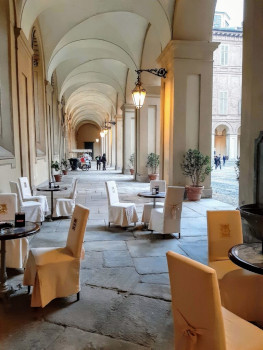
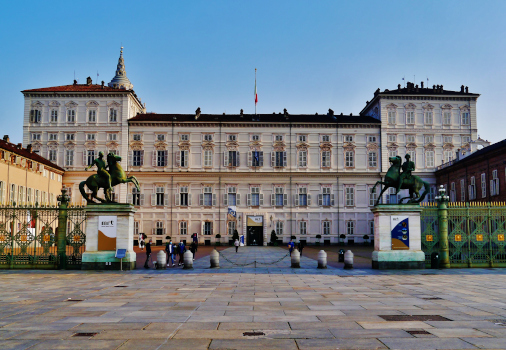
We regret to inform you that it is no longer possible to accept registrations for the Welcome Drink.
CAFFE' REALE, PALAZZO REALE
Thursday 11 September h. 7:00-8:00 p.m. Auditorium - Aldo Moro complex
(included in the fee)
Live concert of the Castagnole Community Choir (gospel music).

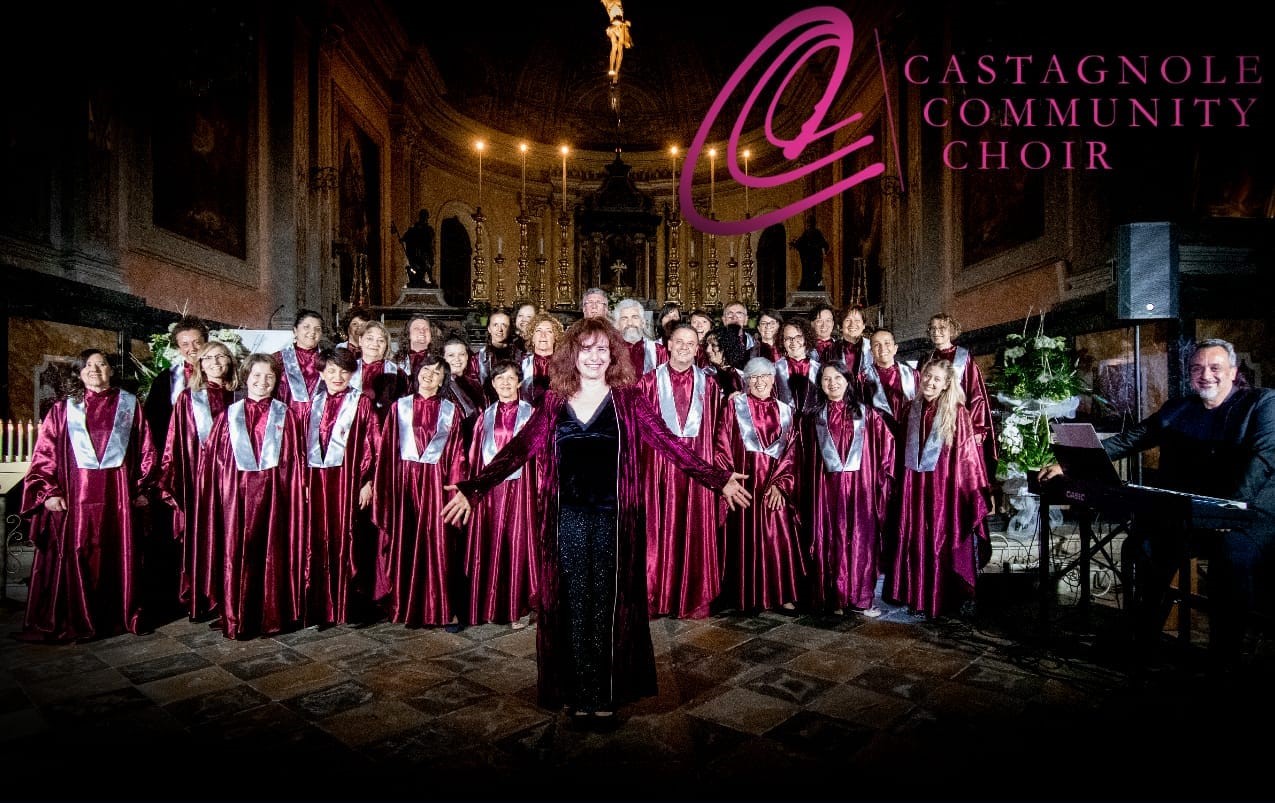
Friday 12 September h. 8 p.m. Social Dinner
(not included in the fee, by reservation only)
The social dinner will be held at Fiorfood restaurant, Galleria S. Federico 28.
https://fiorfood.it/
Please, register by 25 August 2025.
We regret to inform you that after this deadline it will no longer be possible to accept registrations.
Please note that it will not be possibile to pay the dinner on site.
This restaurant is located in one of the historic shopping arcades of Turin, Galleria San Federico, a few steps from Piazza Castello and Piazza San Carlo.

AIA JUNIOR
AIA BEST PRESENTATION PRIZE
 |
For the first time at the AIA 32 Conference, AIA will assign a “Best presentation prize” to the best presentations delivered by participants who have registered under the “PhD candidate, post-doc, temporary staff, CEL, independent scholar, school teacher ” categories. Four prizes will be assigned to participants belonging to ANGL-01/A (Letteratura inglese) (two prizes) and to ANGL-01/C (Lingua, traduzione e linguistica inglese) (two prizes). If you want to participate in the “AIA Best presentation prize”, please send an email to DEADLINE EXTENDED 15 JULY 2025 |
Please note that only single-author presentations will be eligible. Each candidate will be evaluated by a panel of AIA members.
Criteria for the award of “AIA Best presentation prize” (Premio AIA per la Migliore Presentazione):
Novelty / originality of the research paper (50%)
Methodology (soundness, clarity and rigour) (25%)
Presentation skills (dynamic pace, visual appeal) (25%)
AUDIO / VIDEO ABSTRACT
Try your hand at producing your audio/video abstract!
AIA invites junior members to send the audio/video abstract of their paper to be posted on the AIA32 Conference website. The aim is to allow young scholars to enhance their visibility within the national and international community. You may decide whether you want to produce an audio file or a video file, depending on your preferences.Texts should be in English.
If you are intrigued by this proposal, send your audio/video abstract in mp4 format to
(please specify “Surname Name Audio / video abstract” in the Subject line)
Send your abstract after the notification of acceptance of your paper proposal (15 May 2025)
| Guidelines The audio/video should last about 2-3 minutes. Suggested content:
|
|
Please send this disclaimer along with your abstract. [download here]
NB Your mp4 recording may be too heavy to send by email. Please try and make it lighter by using a specific programme like https://www.freeconvert.com/
ORGANIZING committee
ORGANIZING COMMITTEE
- Esterino Adami
- Harjot Banga
- Cecilia Boggio
- Maria Cristina Caimotto
- Stefania Cicillini
- Carmen Concilio
- Michelangelo Conoscenti
- Francesca Cozzitorto
- Irene De Angelis
- Massimiliano Demata
- Paola Della Valle
- Maria Laura Ferroglio
- Maria Festa
- Antonella Maria Giacosa
- Ilaria Giordano
- Martina Maggi
- Alessio Mattana
- Vincenza Minutella
- Alessandra Molino
- Costanza Mondo
- Ilaria Parini
- Teresa Prudente
- Silvia Pireddu
- Virginia Pulcini
- Giorgia Riboni
- Marco Santello
- Aurora Trapella
- Nesrine Triki
- Virginia Zorzi
- Angela Zottola
Scientific Committee
SCIENTIFIC COMMITTEE
- Esterino Adami (Università di Torino)
- Giuseppe Balirano (Università di Napoli “L’Orientale”)
- Roberto Baronti Marchiò (Università di Cassino e del Lazio Meridionale)
- Cecilia Boggio (Università di Torino)
- Paola Brusasco (Università di Chieti)
- Claudia Cao (Università di Cagliari)
- Valentina Castagna (Università di Palermo)
- Paola Catenaccio (Università di Milano)
- Carmen Concilio (Università di Torino)
- Michelangelo Conoscenti (Università di Torino)
- Giuseppina Cortese (Università di Torino)
- Manuela D’Amore (Università di Catania)
- Pietro Deandrea (Università di Torino)
- Irene De Angelis (Università di Torino)
- Bianca Del Villano (Università di Napoli “L’Orientale”)
- Paola Della Valle (Università di Torino)
- Massimiliano Demata (Università di Torino)
- Elena Di Giovanni (Università di Macerata)
- Eleonora Federici (Università di Ferrara)
- Cristiano Furiassi (Università di Torino)
- Francesca Guidotti (Università di Bergamo)
- Siria Guzzo (Università di Salerno)
- Bronwen Hughes (Università di Napoli Parthenope)
- Bruna Mancini (Università della Calabria)
- Pierpaolo Martino (Università di Bari)
- Vincenza Minutella (Università di Torino)
- Alessandra Molino (Università di Torino)
- Marilena Parlati (Università di Padova)
- Donatella Pallotti (Università di Firenze)
- Silvia Pireddu (Università di Torino)
- Teresa Prudente (Università di Torino)
- Virginia Pulcini (Università di Torino)
- Irene Ranzato (Sapienza Università di Roma)
- Enrico Reggiani (Università Cattolica del Sacro Cuore)
- Giorgia Riboni (Università di Torino)
- Federico Sabatini (Università di Torino)
- Rossana Maria Sebellin (Università di Roma Tor Vergata)
- Maria Grazia Sindoni (Università di Messina)
- Elena Spandri (Università di Siena)
- Massimo Sturiale (Università di Milano)
- Laura Tosi (Università Ca’ Foscari Venezia)
- Angela Zottola (Università di Torino)
REGISTRATION & DEADLINES
REGISTRATION & DEADLINES
Deadline for early bird registration: 30 May 2025
Early registration payment due by 16 June 2025
Deadline for standard registration for presenters to the conference: 10 July 2025
Standard registration payment due by 25 July 2025
Deadline for standard registration for non-presenters to the conference: 25 August 2025
Standard registration payment due by 5 September 2025
Please note that registration is now closed.
Please be aware that registration and proof of payment are mandatory to be included in the programme.
Please fill out both the Google Form and the PDF form.
Please fill out the following form to register.
REGISTRATION PDF FORM CLICK HERE TO DOWNLOAD to provide the information required to issue the payment slip.
Registration for the conference will be confirmed by the conference secretariat (
AIA 32 PAYMENT MODALITIES
- Participants from Italy should pay using PagoPA. The payment slip will be sent via email.
- Participants from abroad should pay by bank transfer or credit card (via Paypal).
Payment can be made with secure registration using PayPal balance or one of the following credit cards: MasterCard/Eurocard; Visa/Delta/Electron; American Express.
All costs for any accompanying people joining optional conference services must be included in the payment.
conference fees
CONFERENCE FEES
Early registration fees: the registration form must be sent by 30 May 2025 - payment is due by 16 June 2025
Academic Staff (PO, PA, RU, RTT, RTD-A, RTD-B): € 240
PhD candidate, post-doc, temporary staff, CEL, independent scholar, school teacher: € 120
Daily rate for all: € 80
Standard registration fees: the registration form must be sent by 10 July 2025 - payment is due by 25 July 2025
Academic Staff (PO, PA, RU, RTT, RTD-A, RTD-B): € 280
PhD candidate, post-doc, temporary staff, CEL, independent scholar, school teacher : €150
Daily rate for all: € 95
Conference fee includes: welcome drink, welcome kit, coffee breaks, lunches (Thursday and Friday), access to conference sessions.
VENUE
Venue
- Auditorium, rooms S1,S2, S3, S4, S5, S6, S7, S8, S9 --> underground Aldo Moro building
- room 1 Moro and room 2 Moro are located on the first and second floor of the Aldo Moro building
- PN (Palazzo Nuovo) rooms: 4, 5, 6, 9, 10, 11, 13, 14, 15, 16, 18, 19, 20 and Terracini (TERR PN) are in Palazzo Nuovo building which is located next to Aldo Moro
- Gorresio (GORR) is a building located behind Aldo Moro, Via Giulia di Barolo 3/A
- Participants attending seminars in the Aldo Moro building will find a buffet in the Auditorium Hall.
- Participants attending seminars in PN (Palazzo Nuovo), Gorresio and Terracini rooms will find a buffet in the Aldo Moro Hall.
TRAVEL & ACCOMMODATION
TRAVEL & ACCOMMODATION
TRAVEL
How to get to Turin
For a clickable map please point your browser to Turin Map
BY PLANE
Turin's Caselle International Airport (15 km from city center) has regular connections with the major Italian airports
Other airports within easy reach are those of Milan (Malpensa and Linate) and Genoa.
Transfer from/to Torino airport
Turin Airport Flight timetable
BY TRAIN
Trenitalia's official timetable
BY BUS
Flixbus official website
LOCAL TRANSPORT
To view local fares for Turin and suburbs click here.
ACCOMMODATION
Below you will find a list of hotels near the conference venue.
***** Grand Hotel Sitea, Via Carlo Alberto 35 (1,2 km)
***** Principi di Piemonte | UNA Esperienze, Via Piero Gobetti 15 (1,4 km)
**** NH Collection Torino Piazza Carlina, Piazza Carlo Emanuele II 15 (600 m)
**** Hotel dei pittori, Corso Regina Margherita 57 (750 m)
**** Opera35 Boutique Hotel, Via della Rocca 35 (950 m)
**** Hotel Victoria Torino, Via Nino Costa 4 (1 km)
**** Hotel NH Torino Santo Stefano, Via Porta Palatina 19 (1,3 km)
**** Hotel Concord Torino, Via Giuseppe Luigi Lagrange 47 (1,5 km)
**** Starhotels Majestic, Corso Vittorio Emanuele II 54 (1,6 km)
*** Hotel Amadeus, Via Principe Amedeo 41bis (300 m)
*** Piazza Vittorio Suites, Piazza Vittorio Veneto 13 (450 m)
*** Santa Giulia Art & Wine Residence, Via Santa Giulia 41 (550 m)
*** Hotel Alpi Resort, Via Alfonso Bonafous 5 (700 m)
*** Piazza Castello Suite, Piazza Castello 153 (950 m)
*** Hotel Chelsea, corner between Via Cappel Verde 1D and Via XX Settembre 79E (1,1 km)
*** Hotel Antica Dogana, Via Corte d’Appello 4 (1,4 km)
*** Best quality Hotel Gran Mogol, Via Guarino Guarini 2 (1,4 km)
*** Best Western Hotel Genio, Corso Vittorio Emanuele II 47 (1,6 km)
*** Hotel Roma e Rocca Cavour, Piazza Carlo Felice 60 (1,6 km)
*** Green Class Hotel Astoria, Via XX Settembre 4 (1,7 km)
** Hotel Napoleon, Via XX Settembre 5 (1,6 km)
Residenza dell’Opera, Via San Massimo 17 (500 m)
Europrooms, Via XX Settembre 64 (1,1 km)
TOURIST INFO
TOURIST INFO
Turin, nestling below its hills and embraced by the river Po, is a city with numerous parks which immerse it in greenery. It owes much of its charm to its magnificent geographical position at the foot of the western Alps. Turin is more than 2000 years old, evidence of which can be seen in its ancient and more modern historical monuments: the ancient Roman gates, the Royal residences, the palazzi and museums. The first capital of Italy, it is full of parks, tree-lined avenues and offers its river, the mountains, historic restaurants and cafés, long arcaded streets and multiethnic neighbourhoods, the moderate splendour of the Piedmont baroque and the originality of modern and contemporary architecture.
Touristic information are available on www.turismotorino.org.
|
Mole Antonelliana
|
|
|
 |
Borgo Medioevale |
Palazzo Madama |
|
Duomo di Torino |
Porte Palatine |
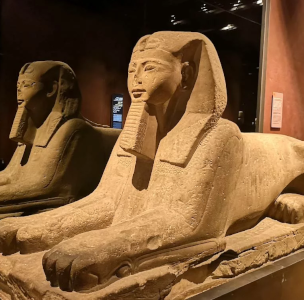 Museo Egizio |
|
Turin by night from Monte dei Cappuccini |
||
contacts
Contacts
For further information, please write to:
AIA 32 Organizing Secretariat:
e-mail:
Tel. +39-011-63.99.254
The conference is organized in collaboration with COREP. (www.corep.it).

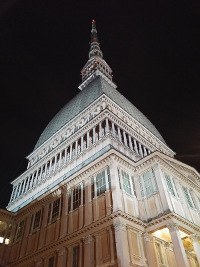
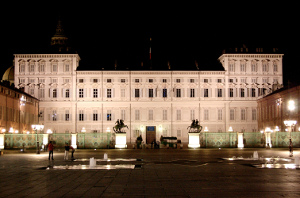 Palazzo Reale
Palazzo Reale